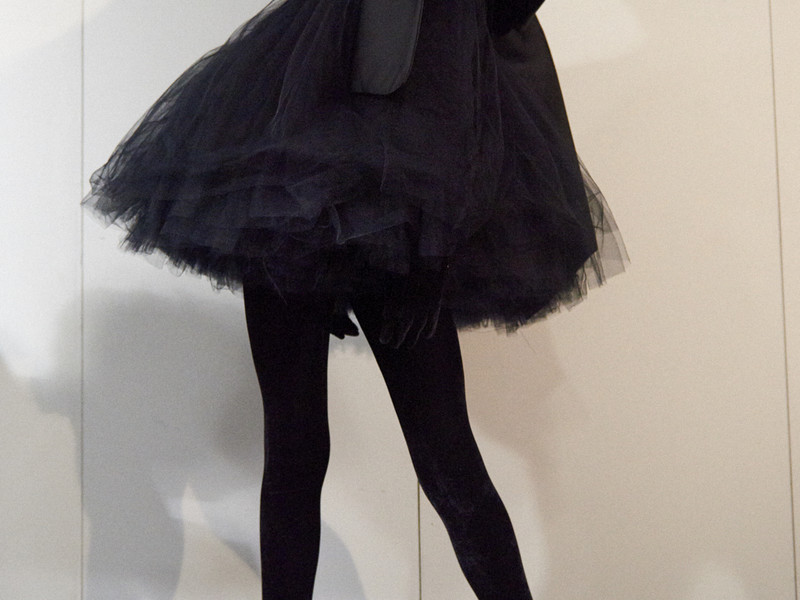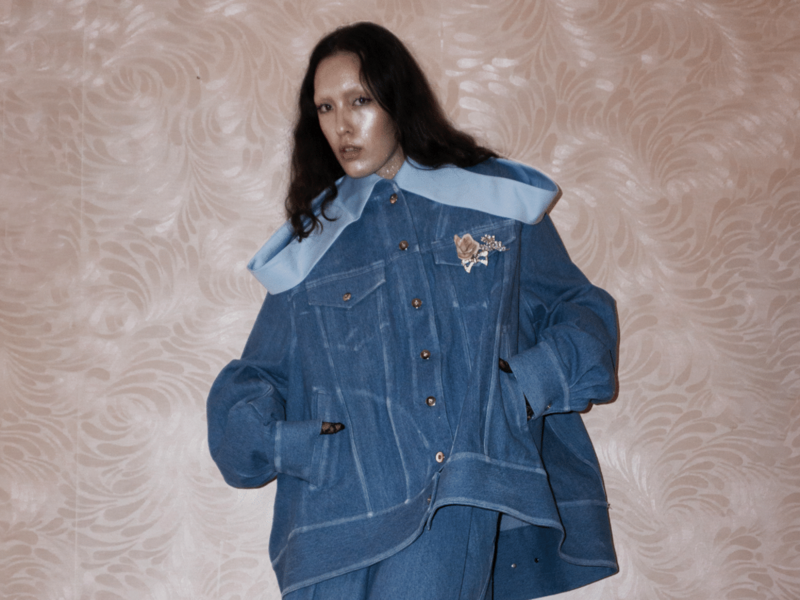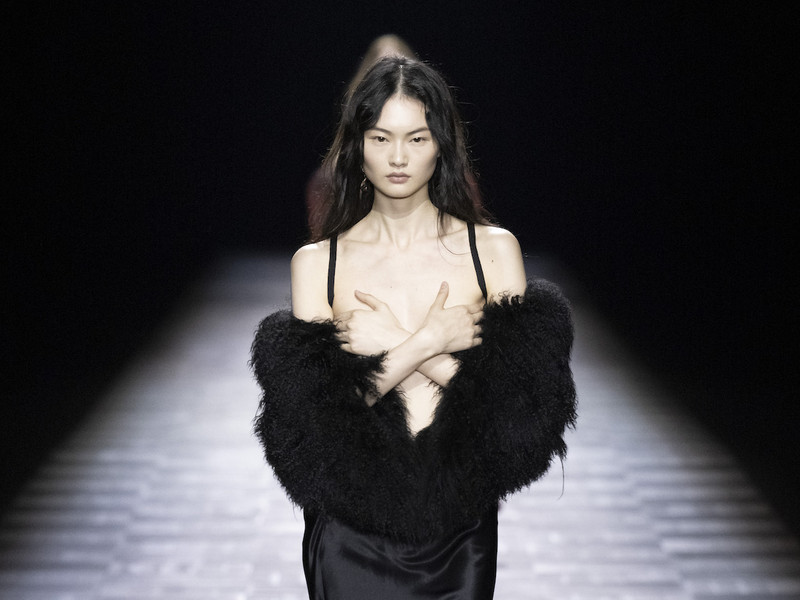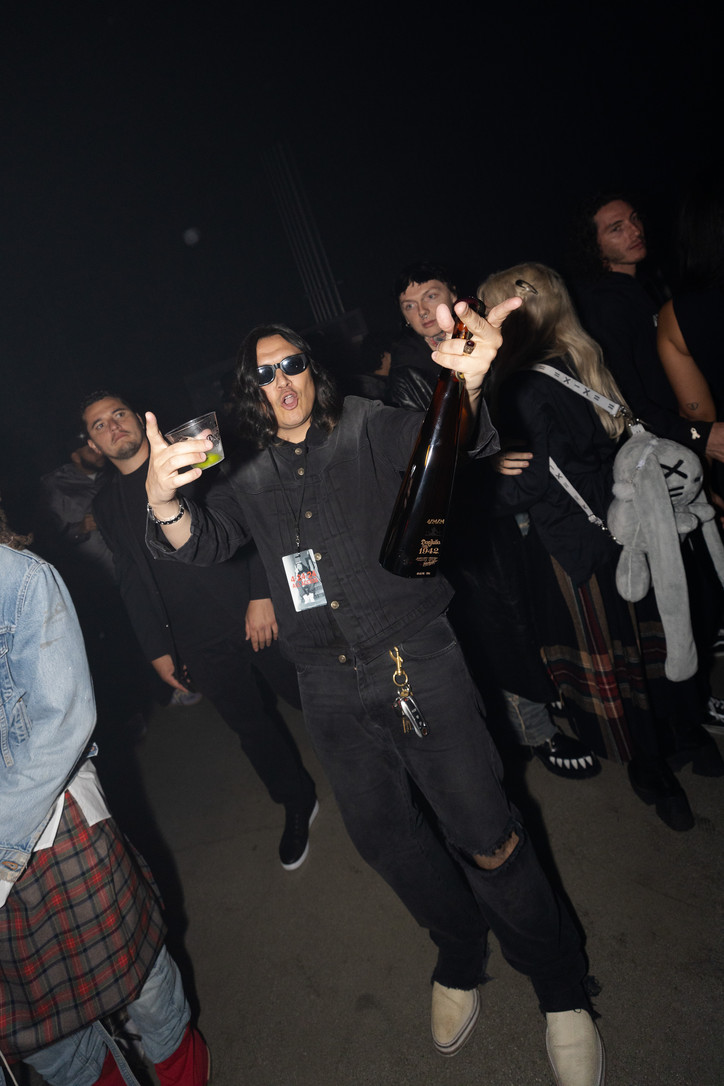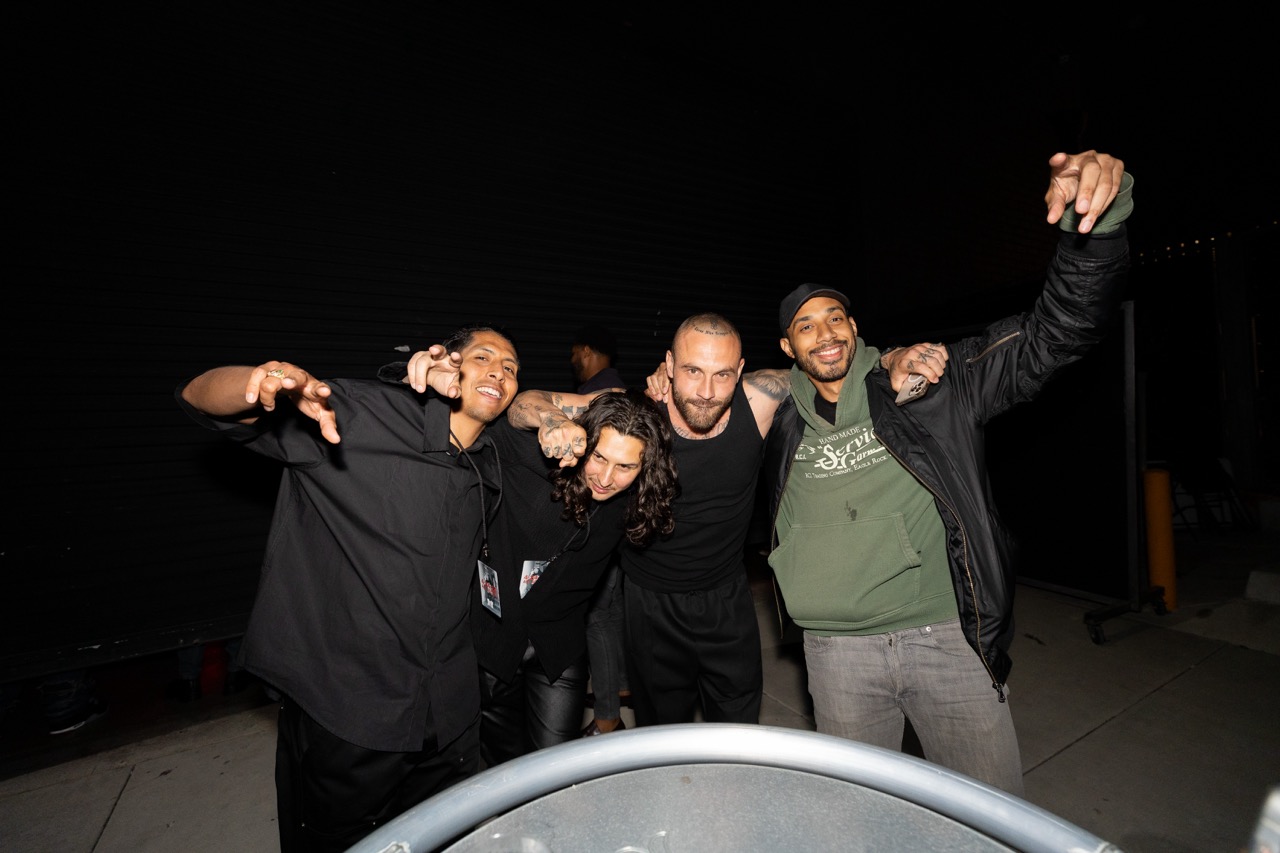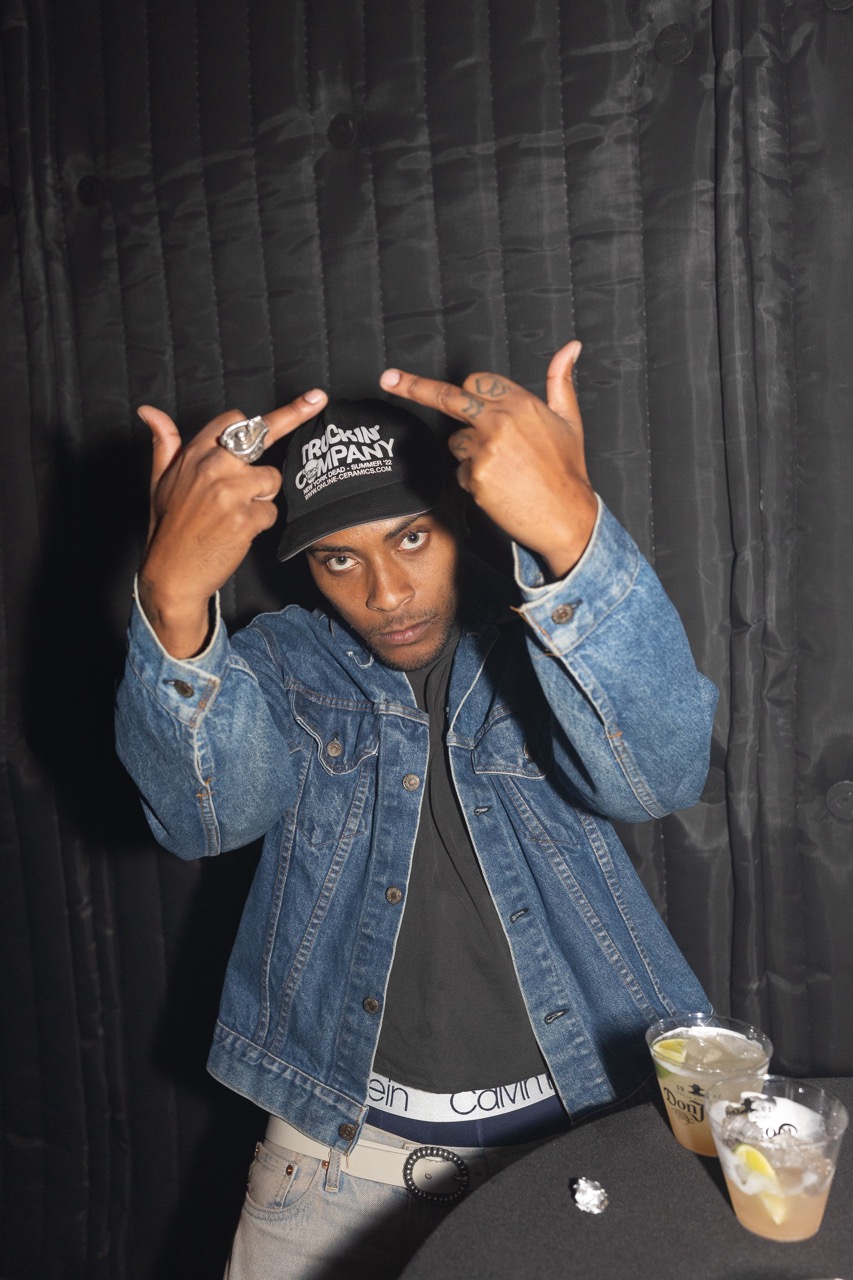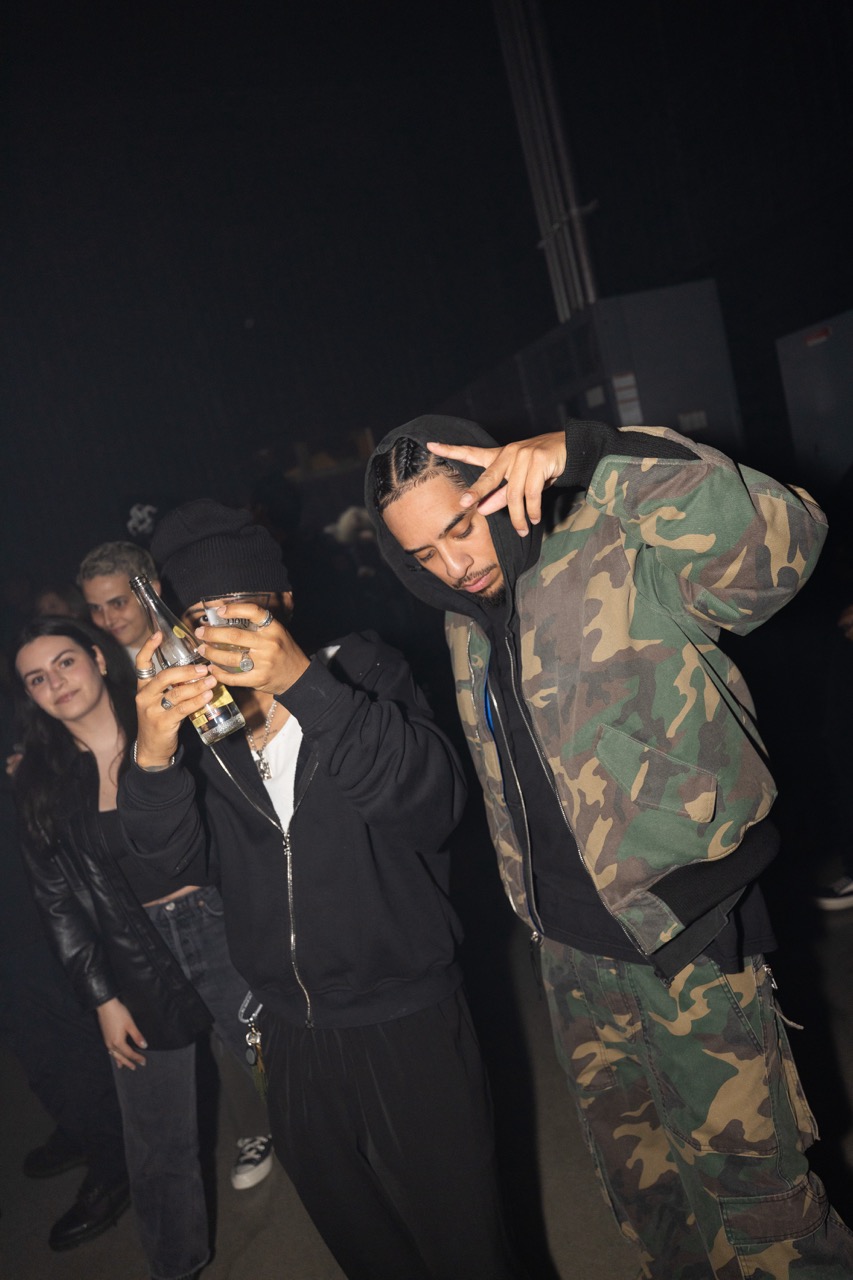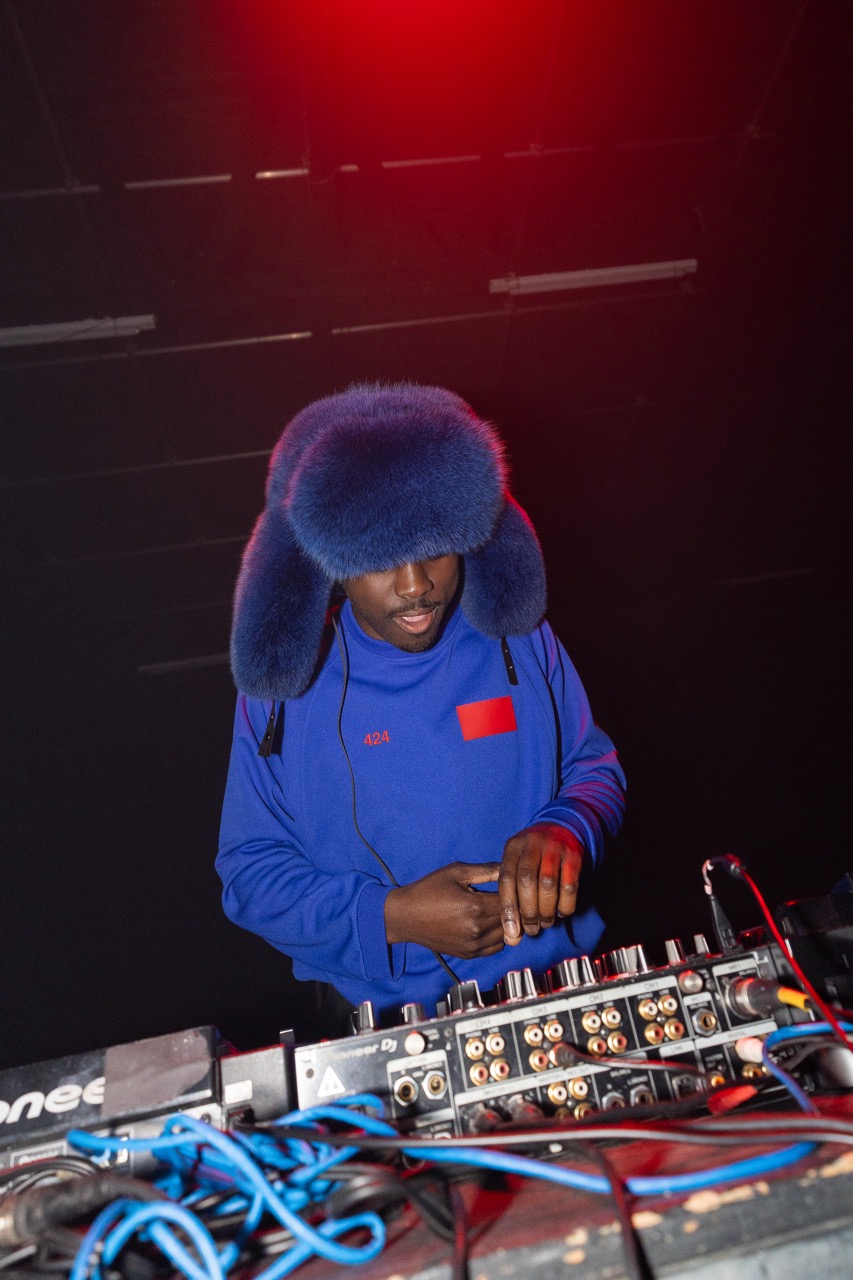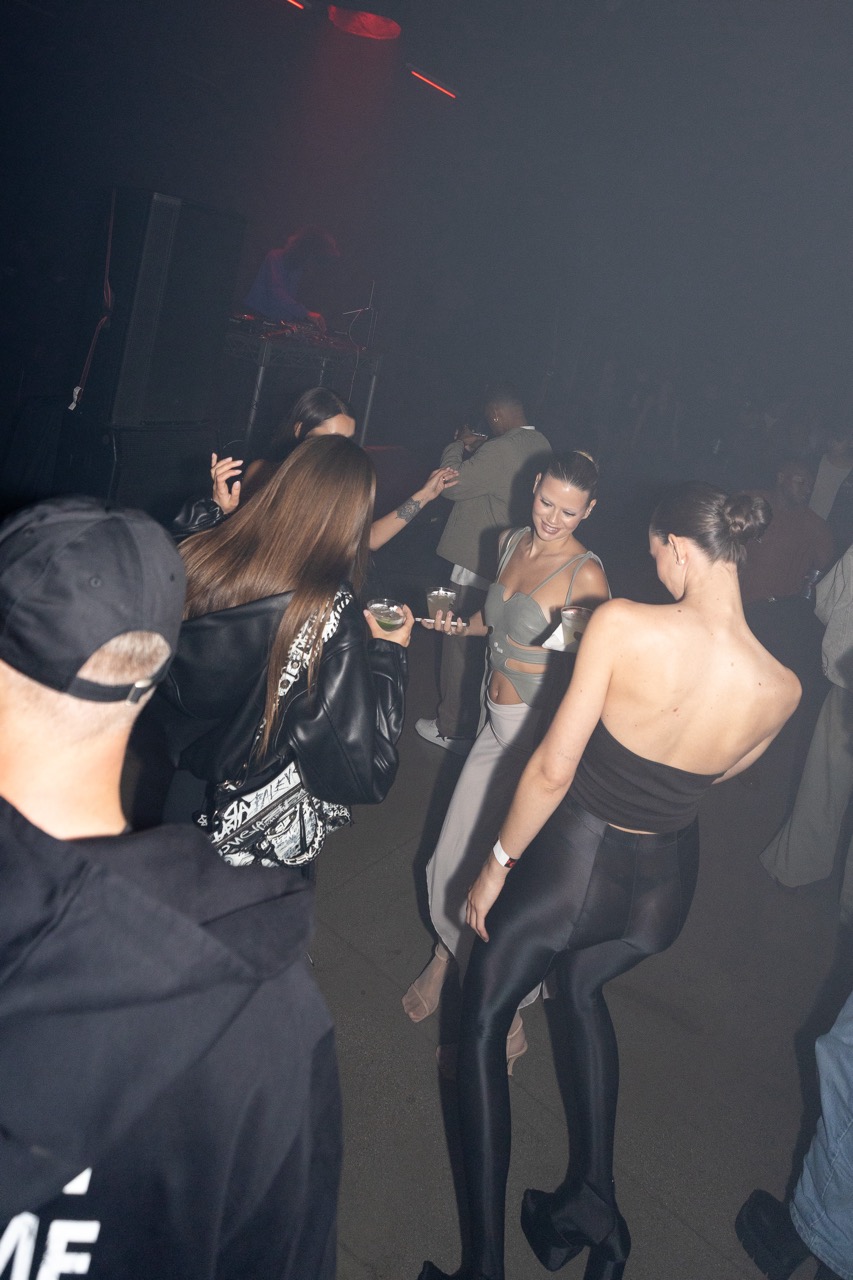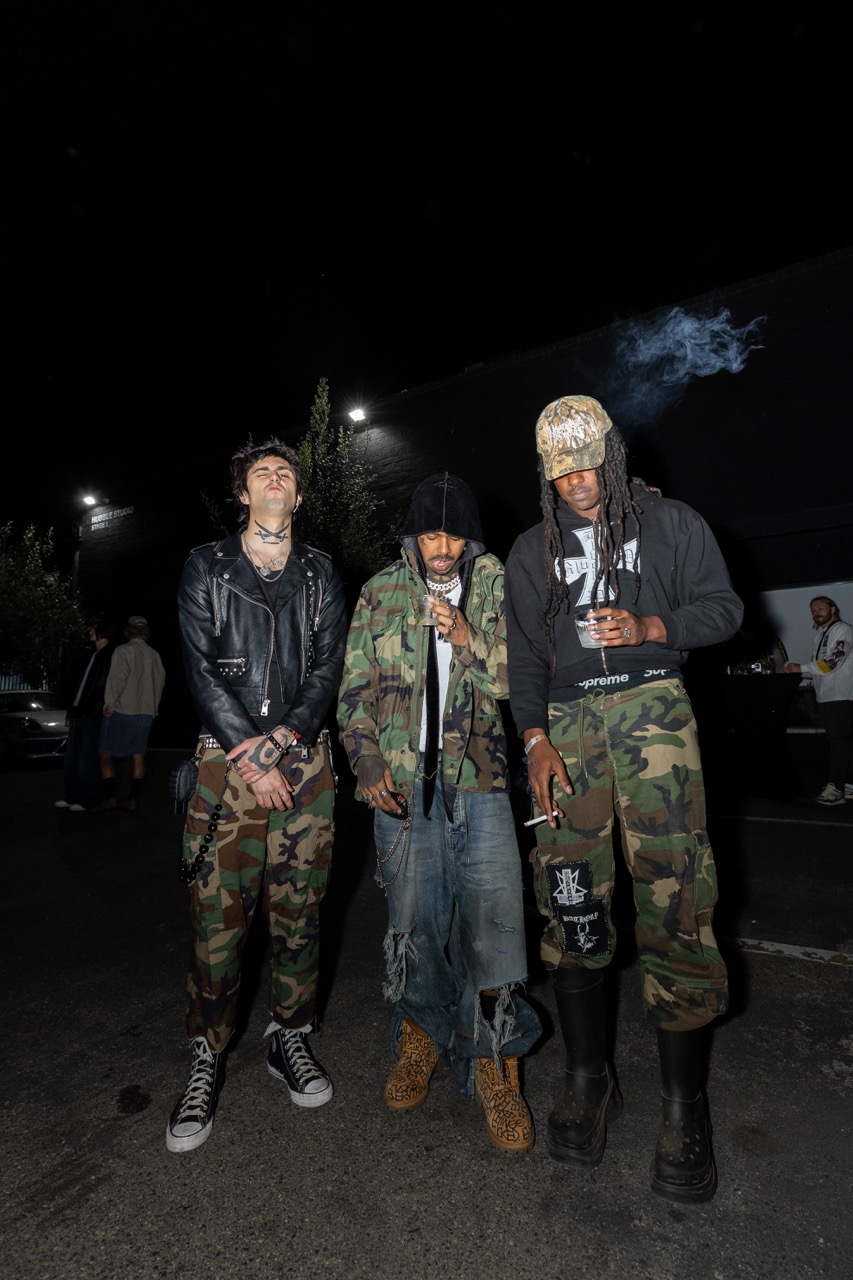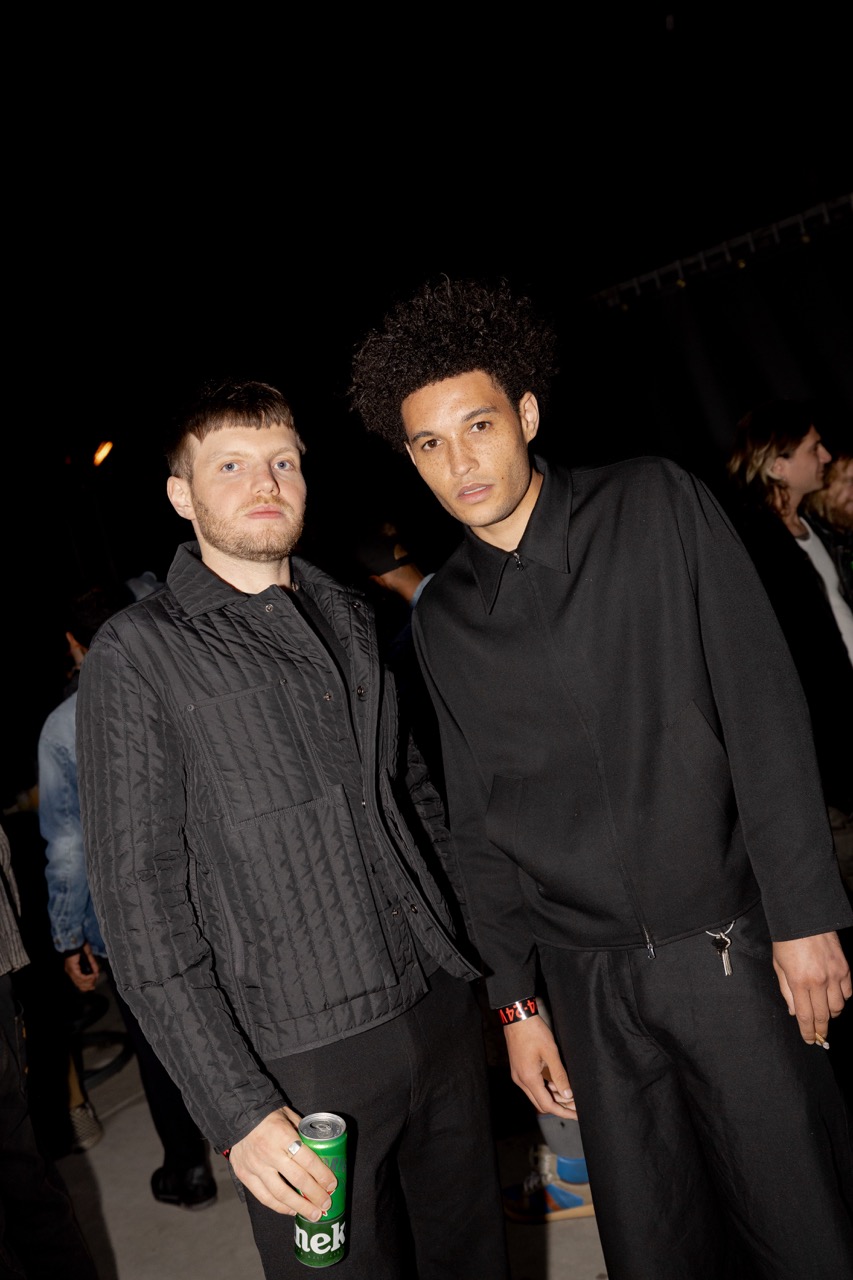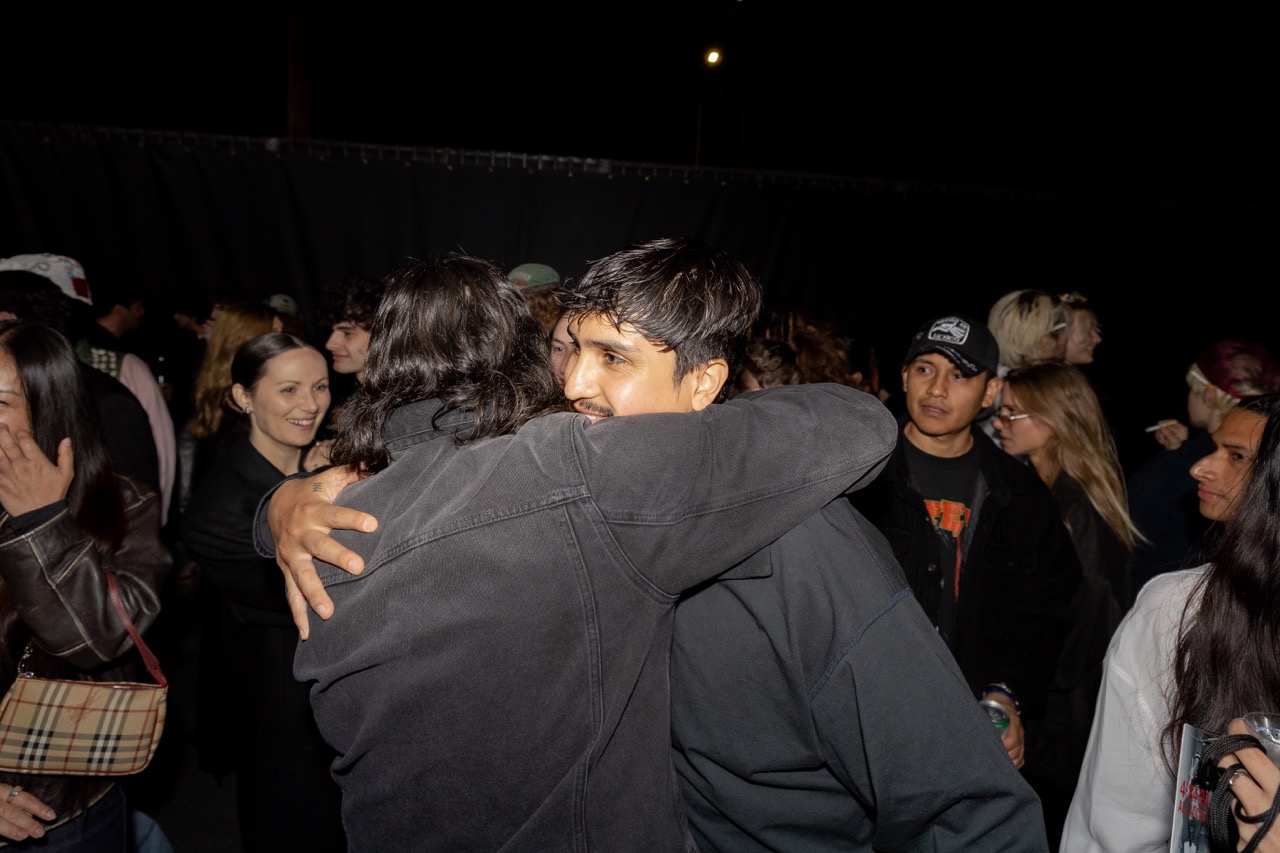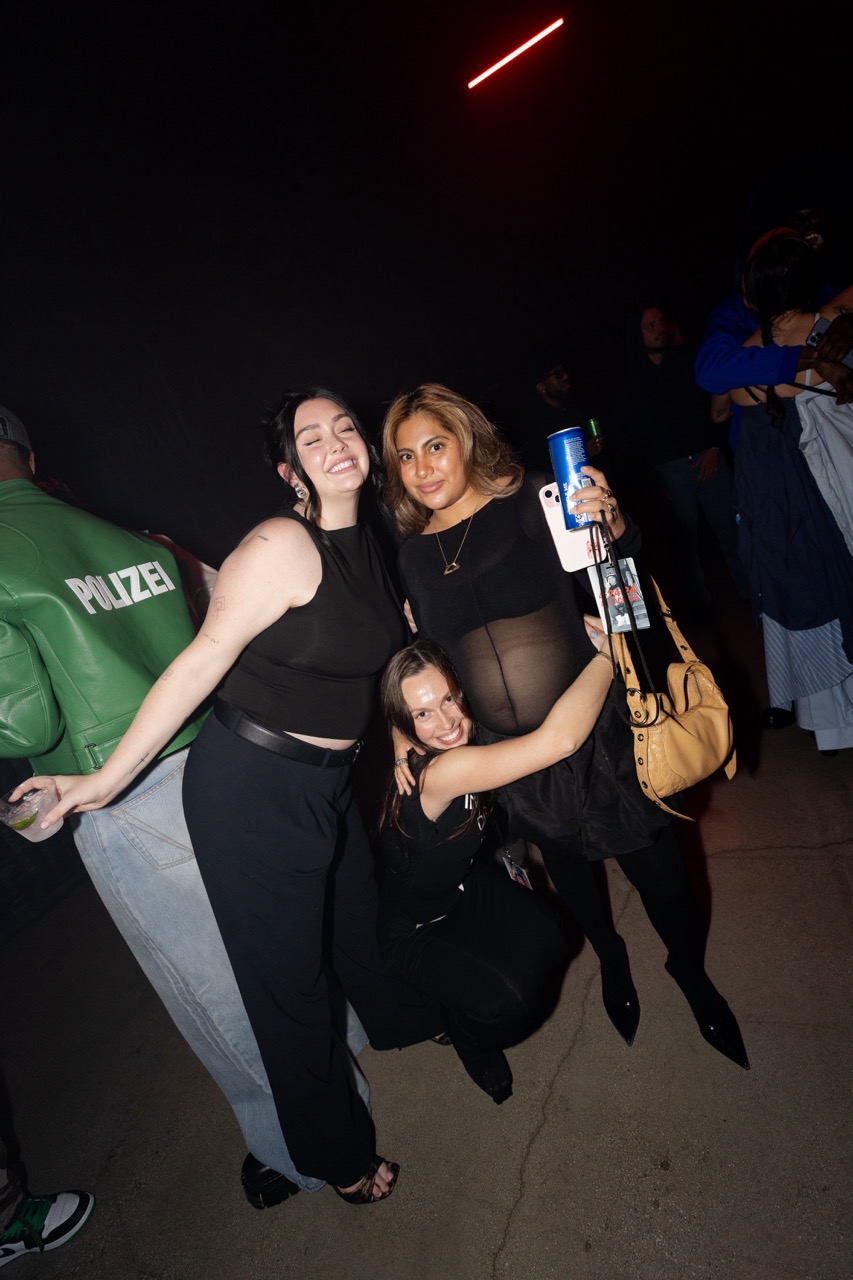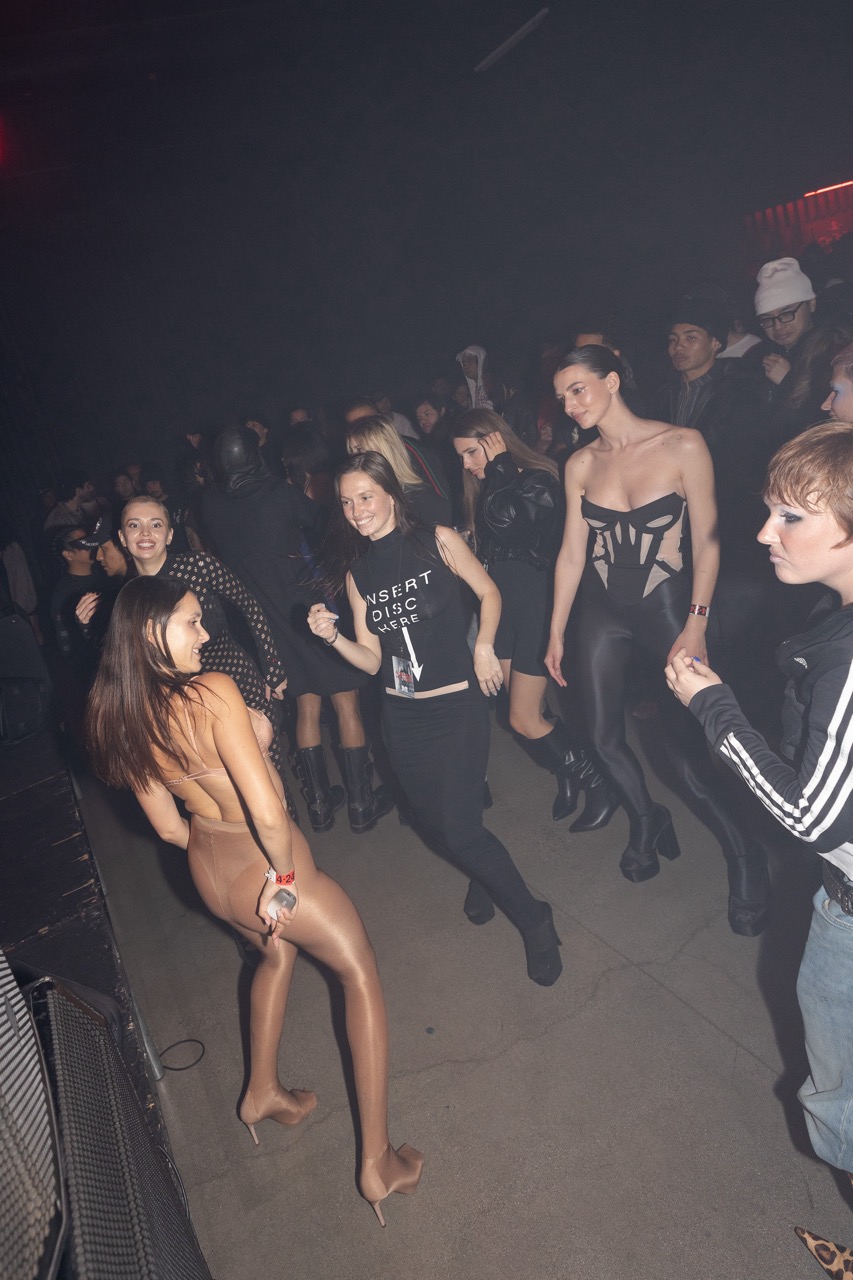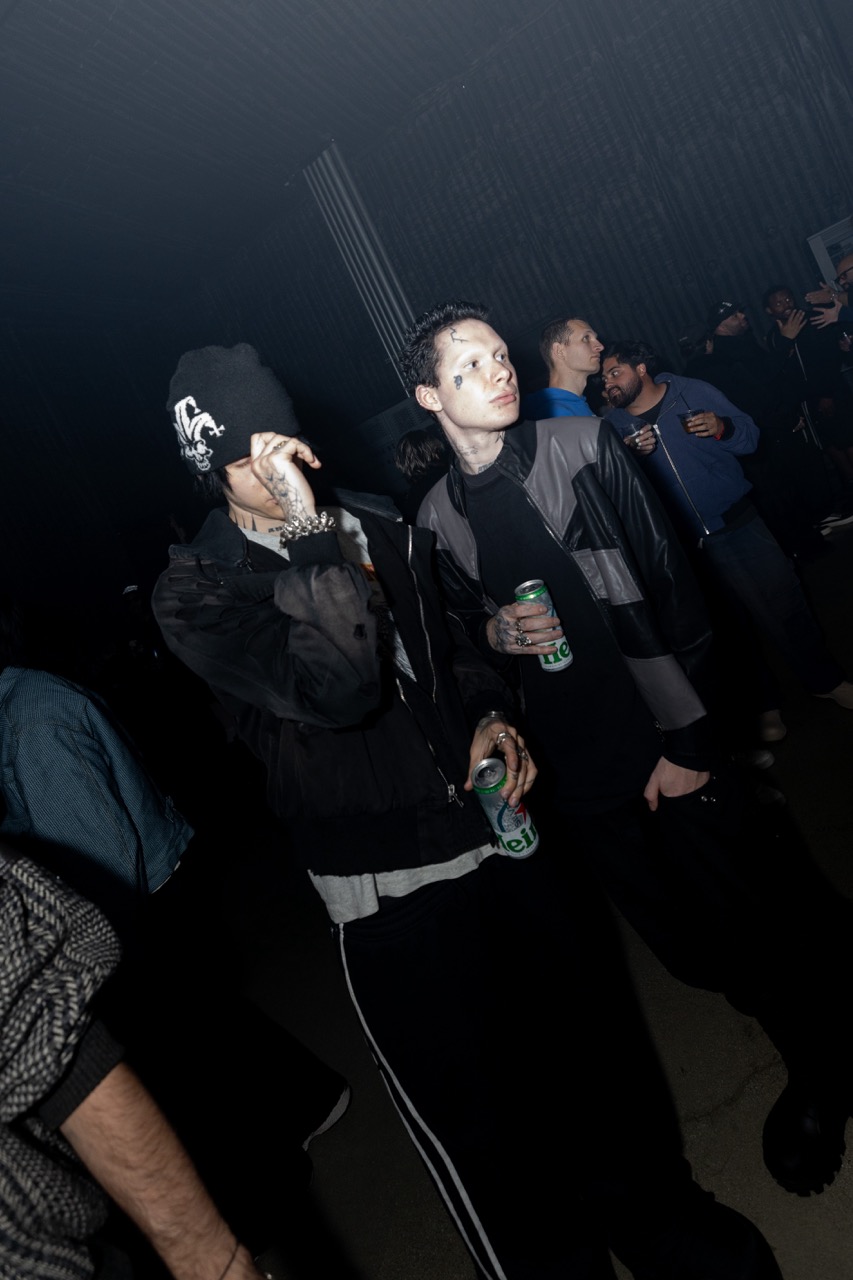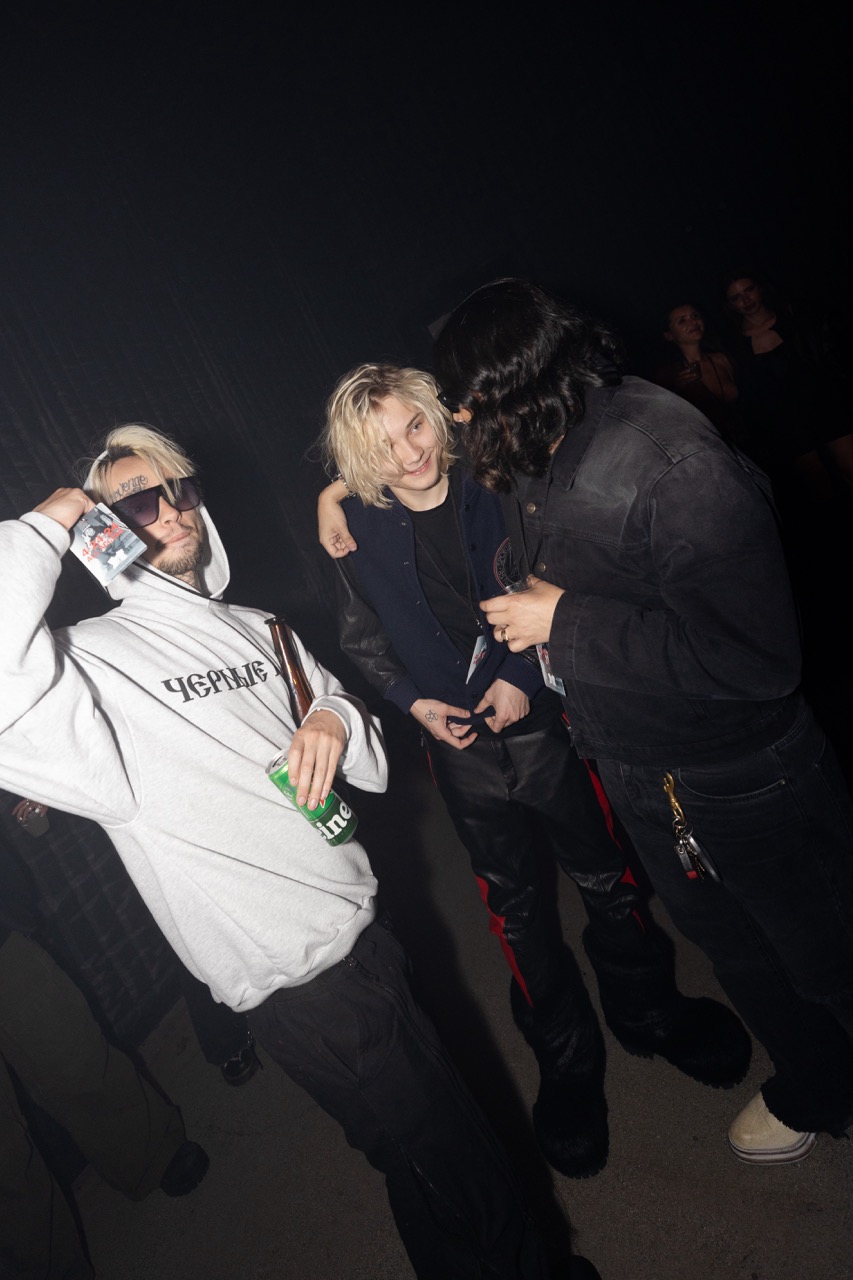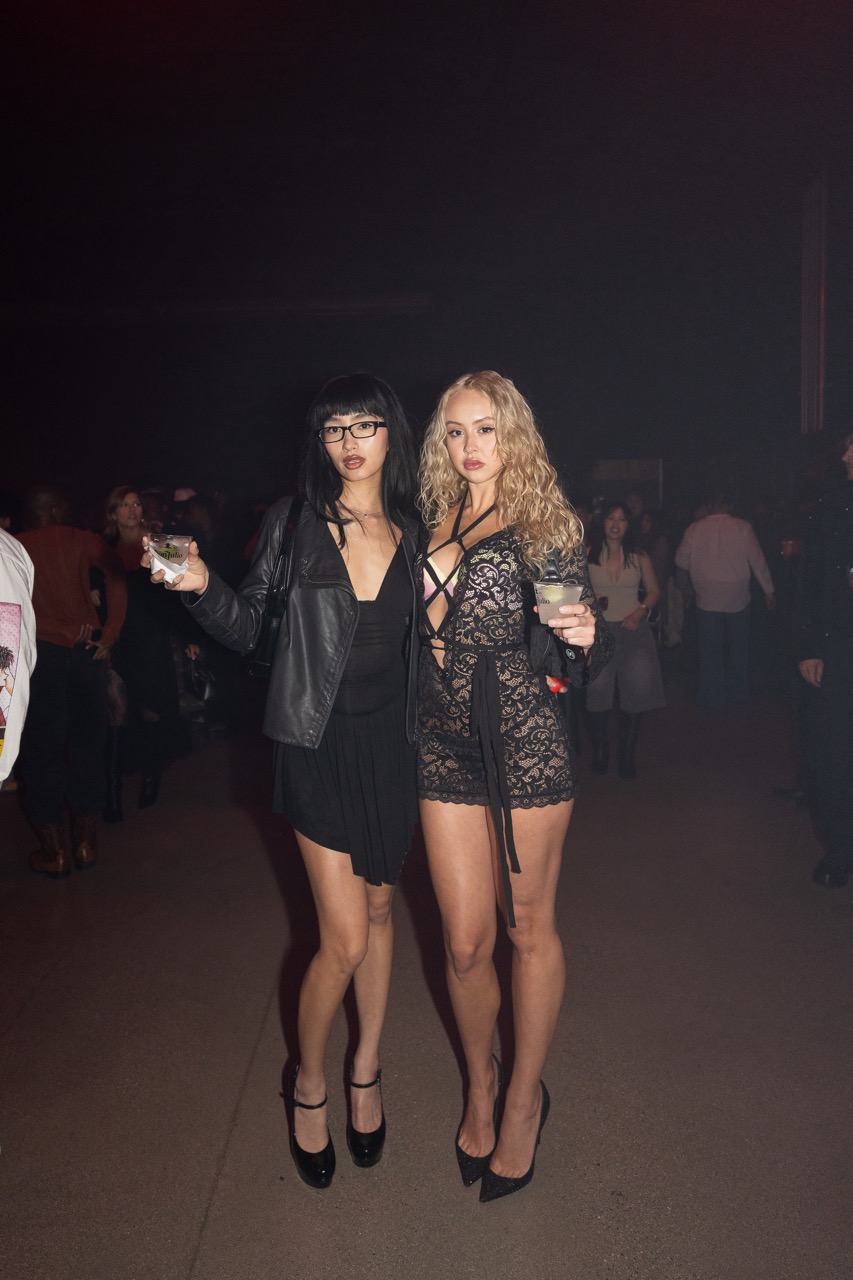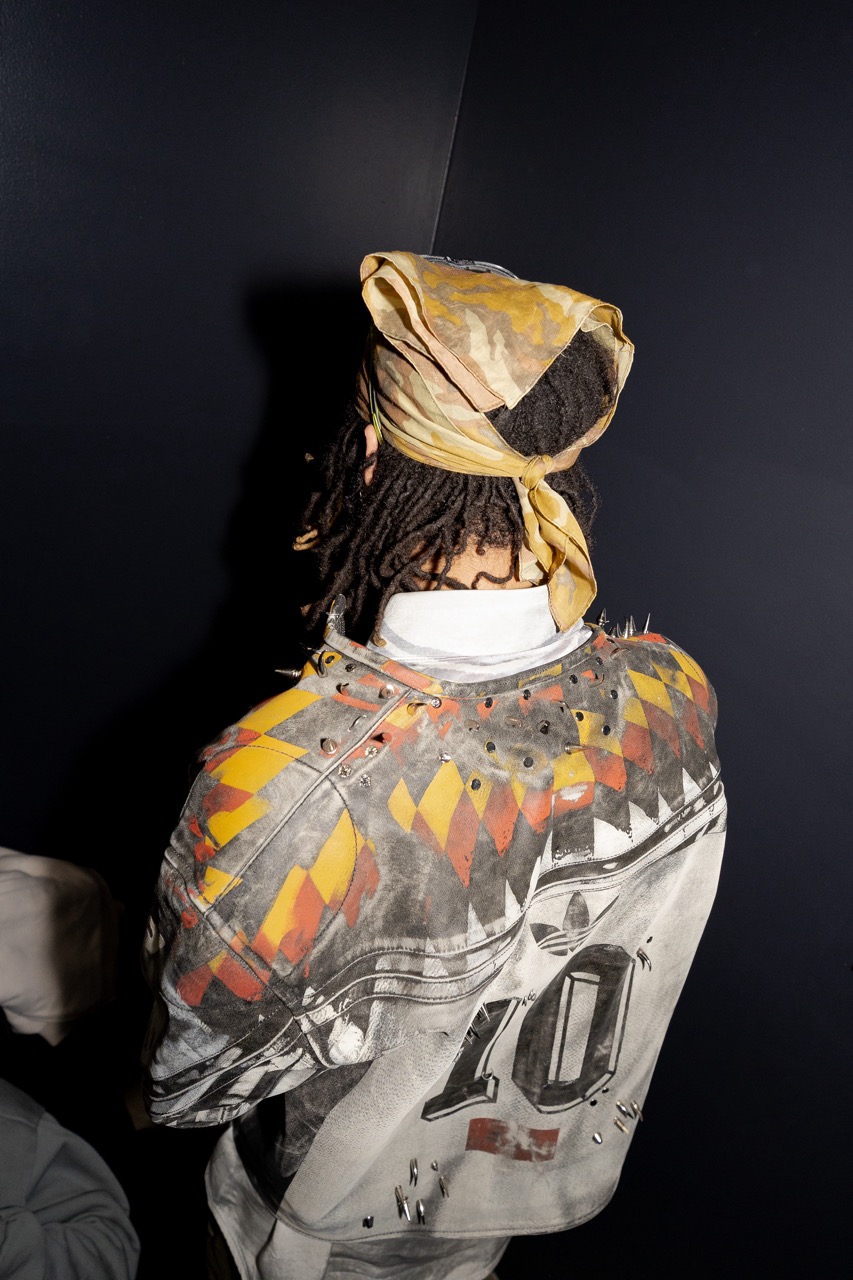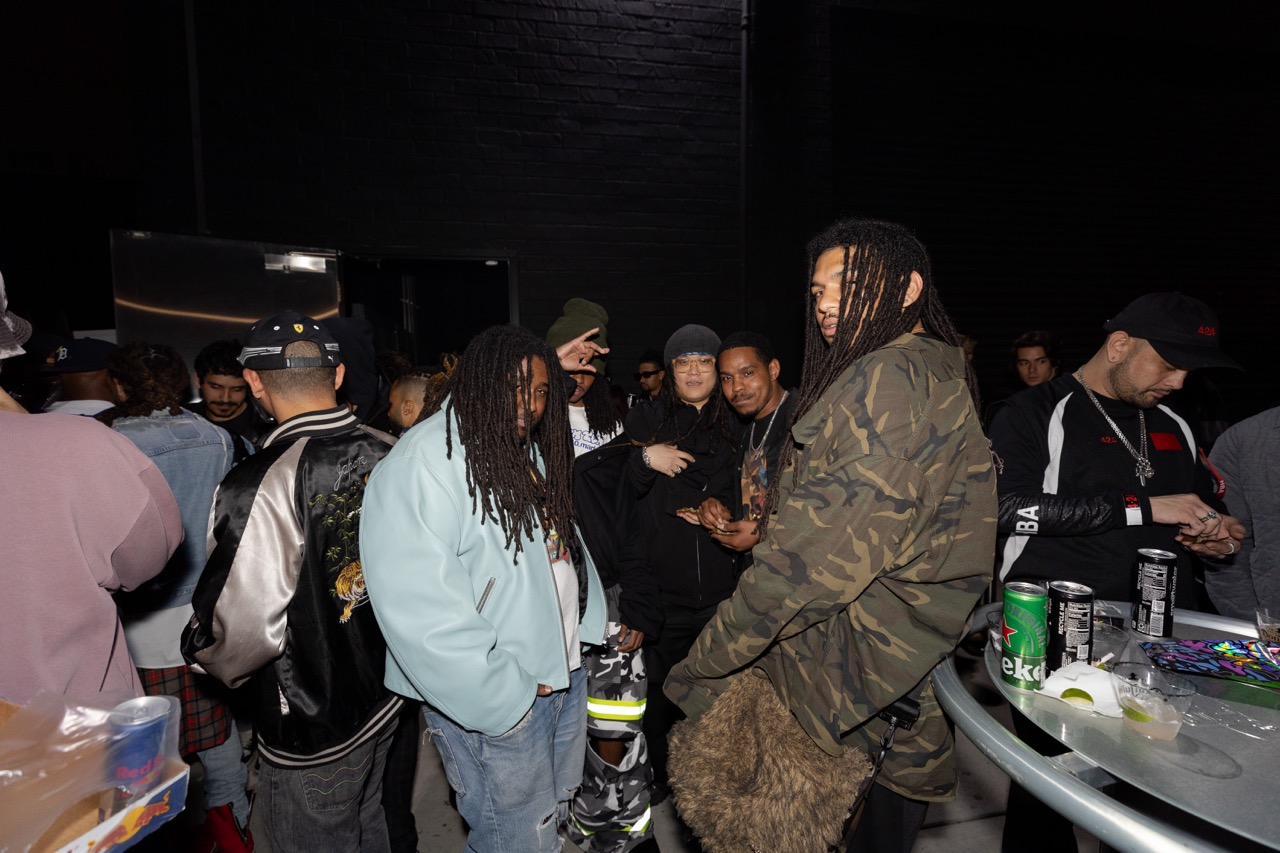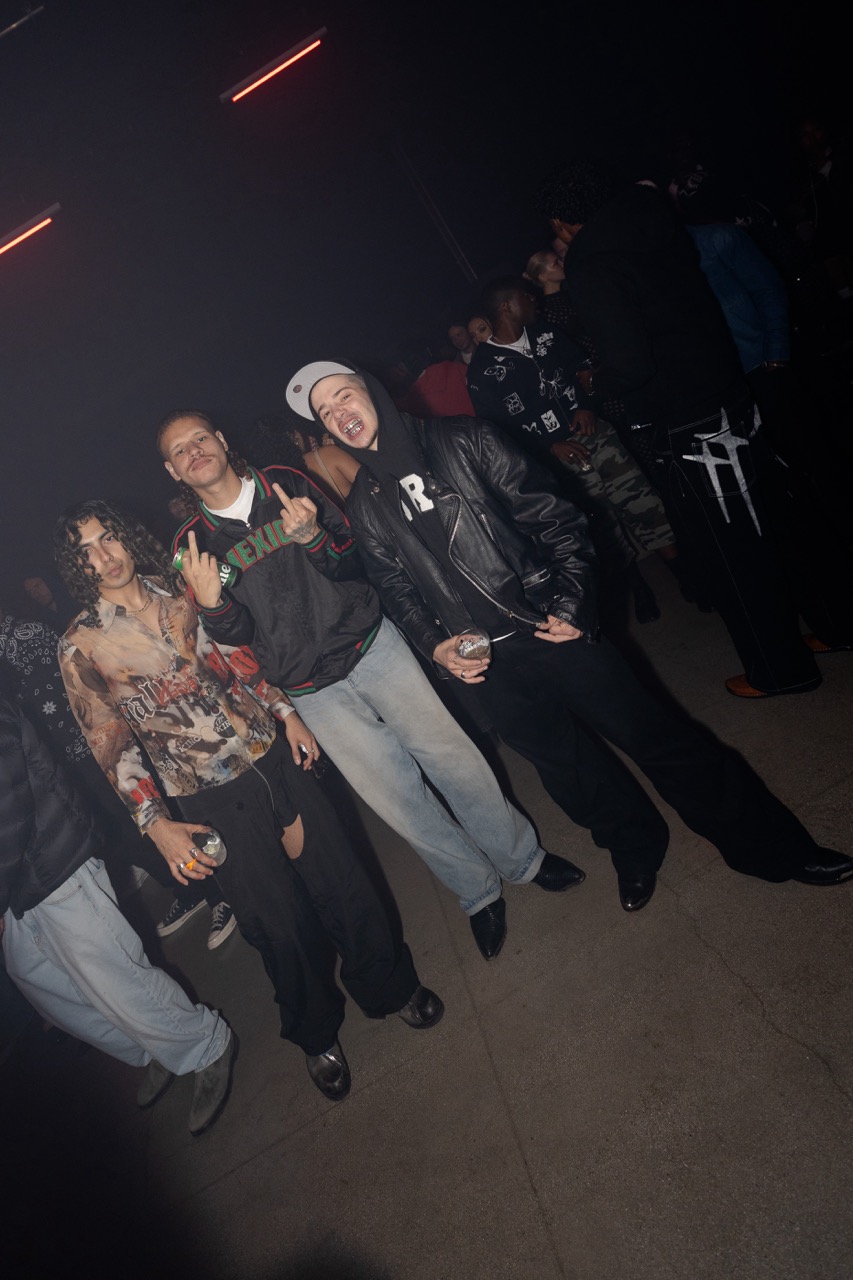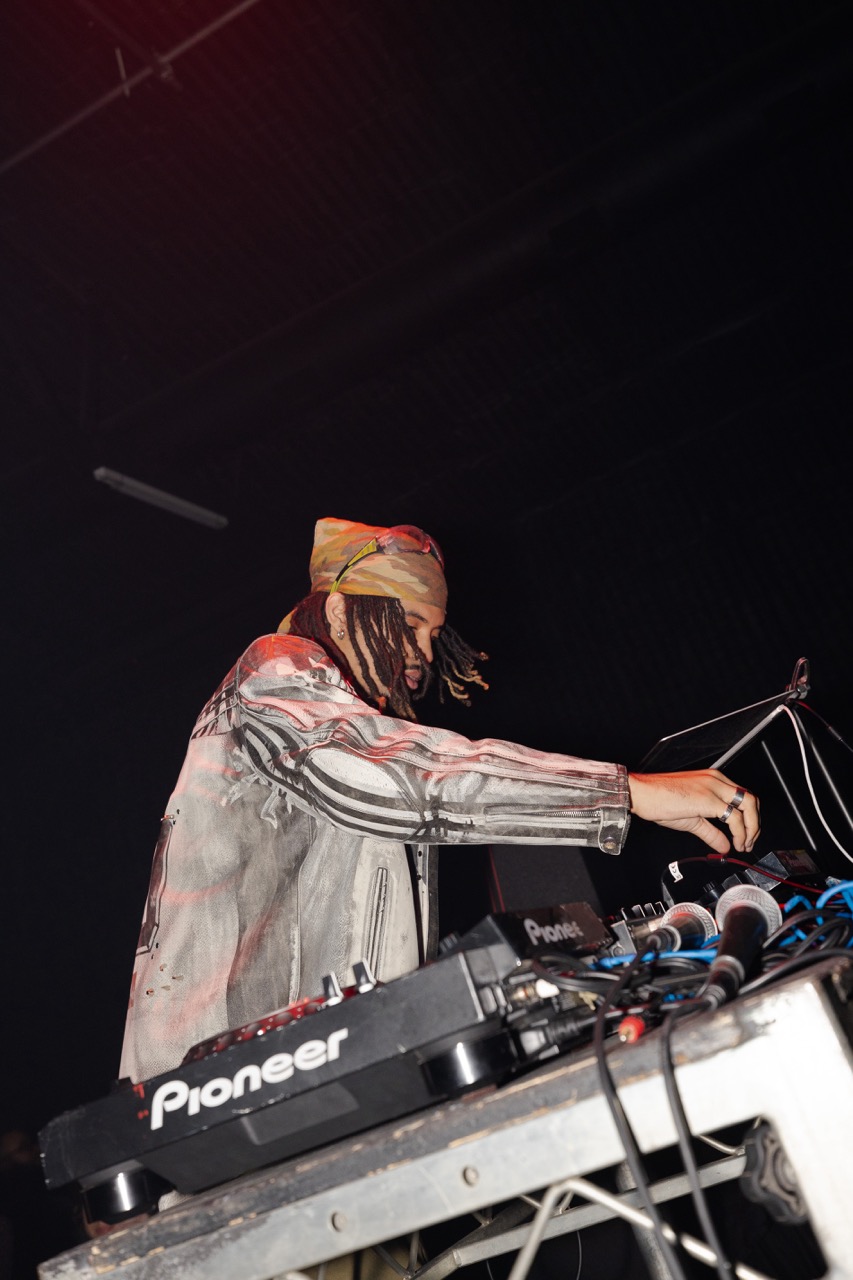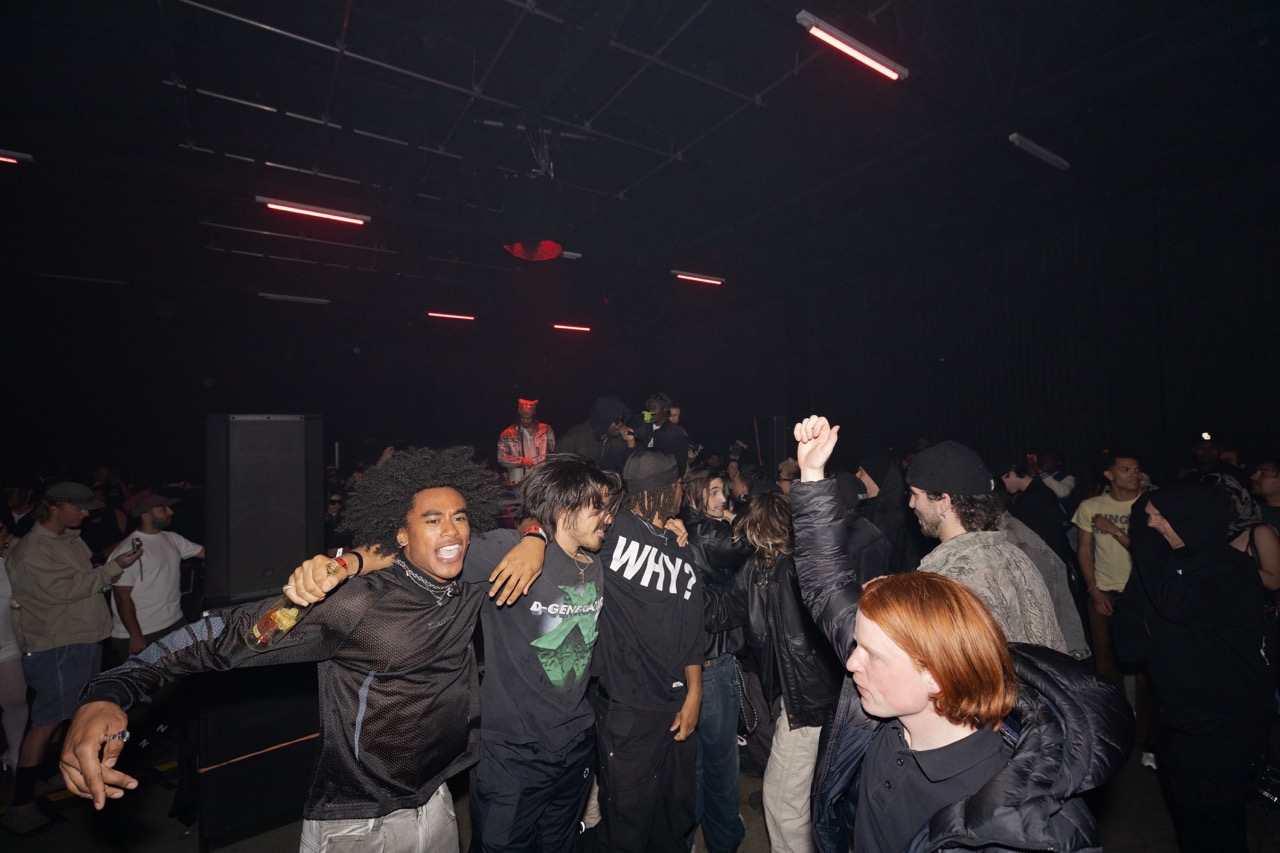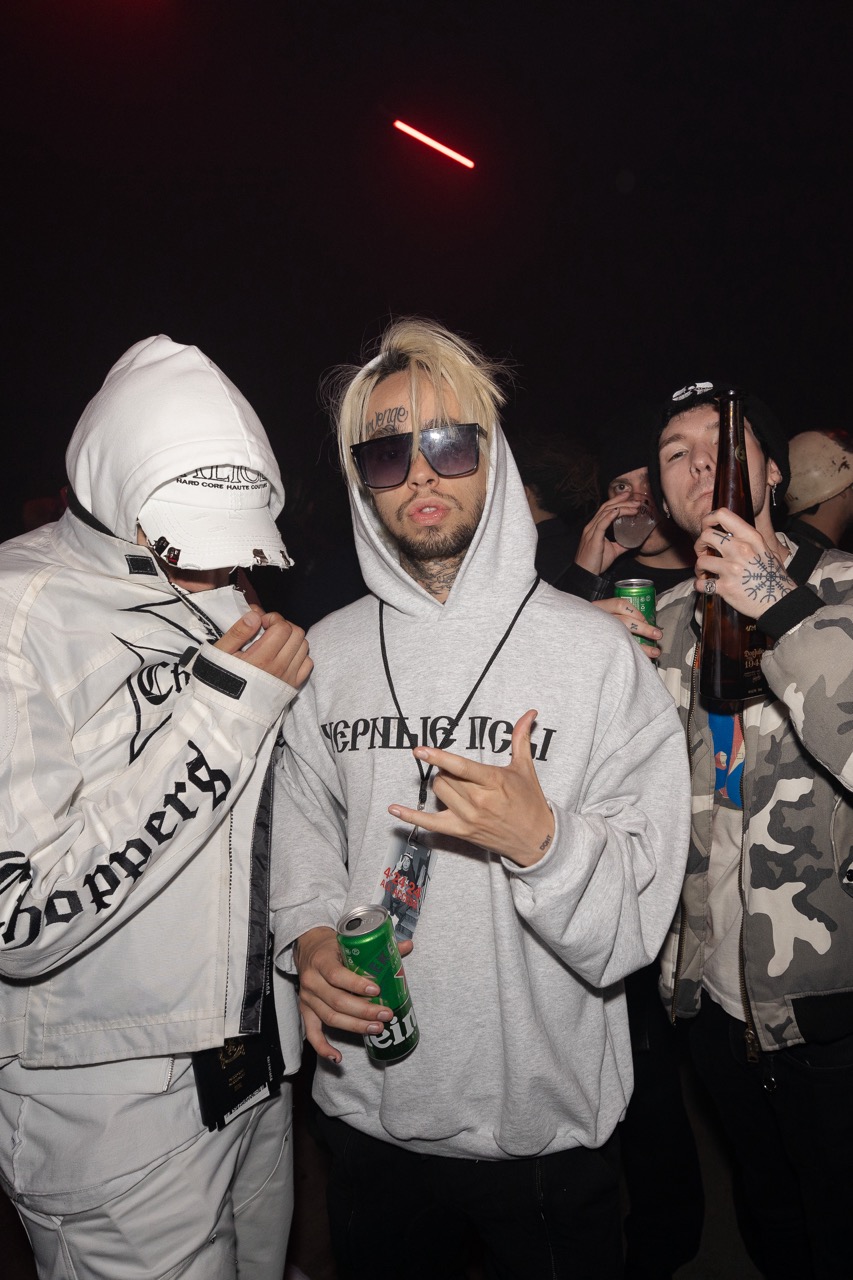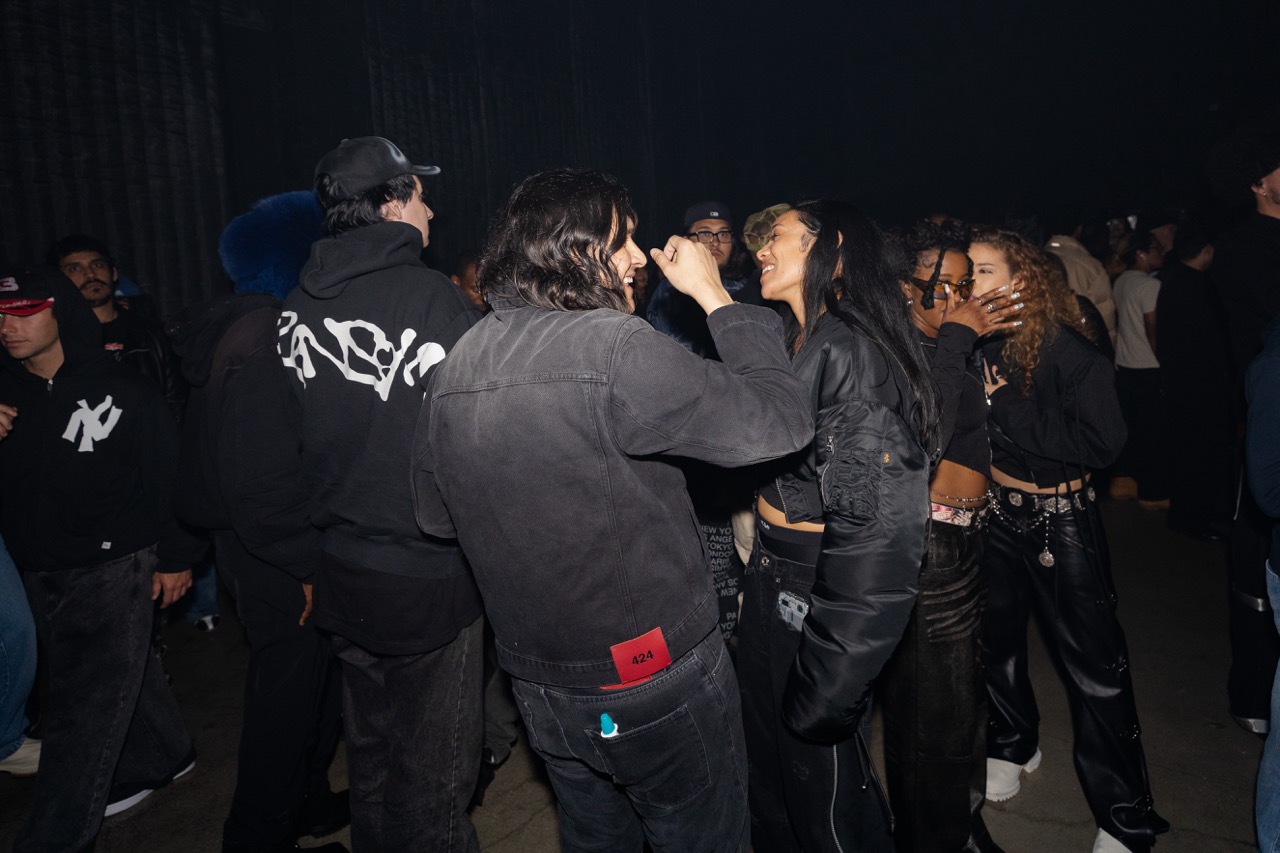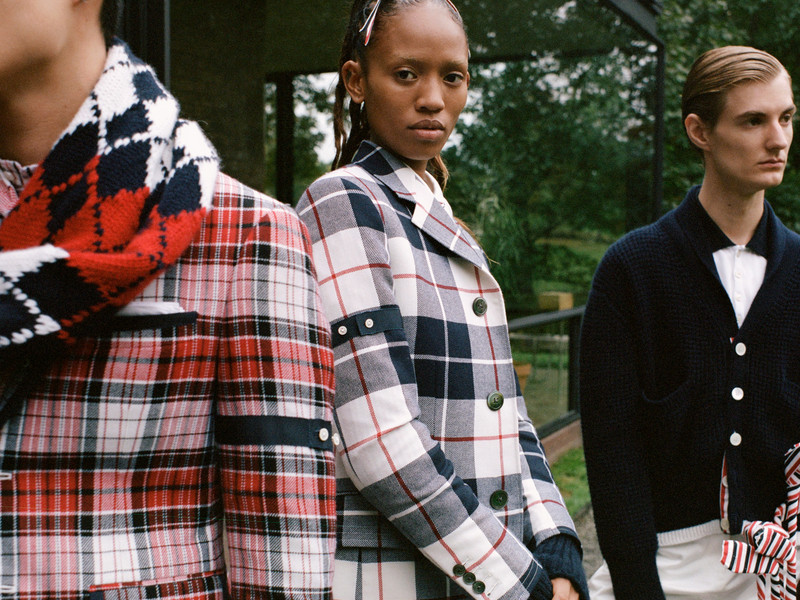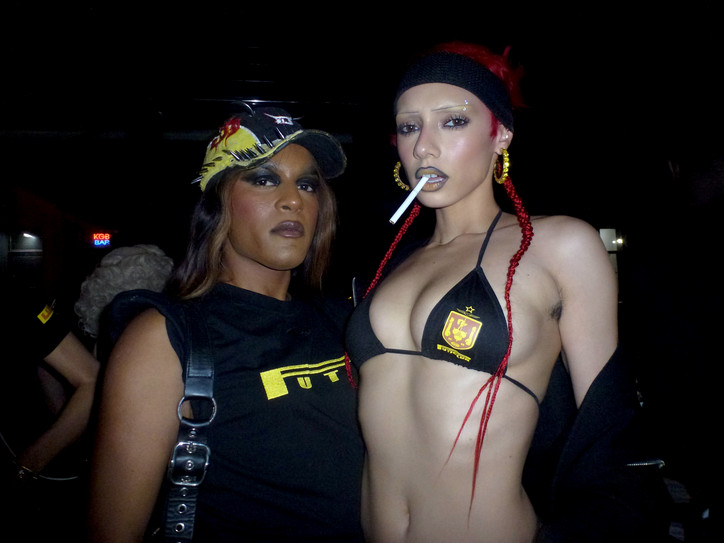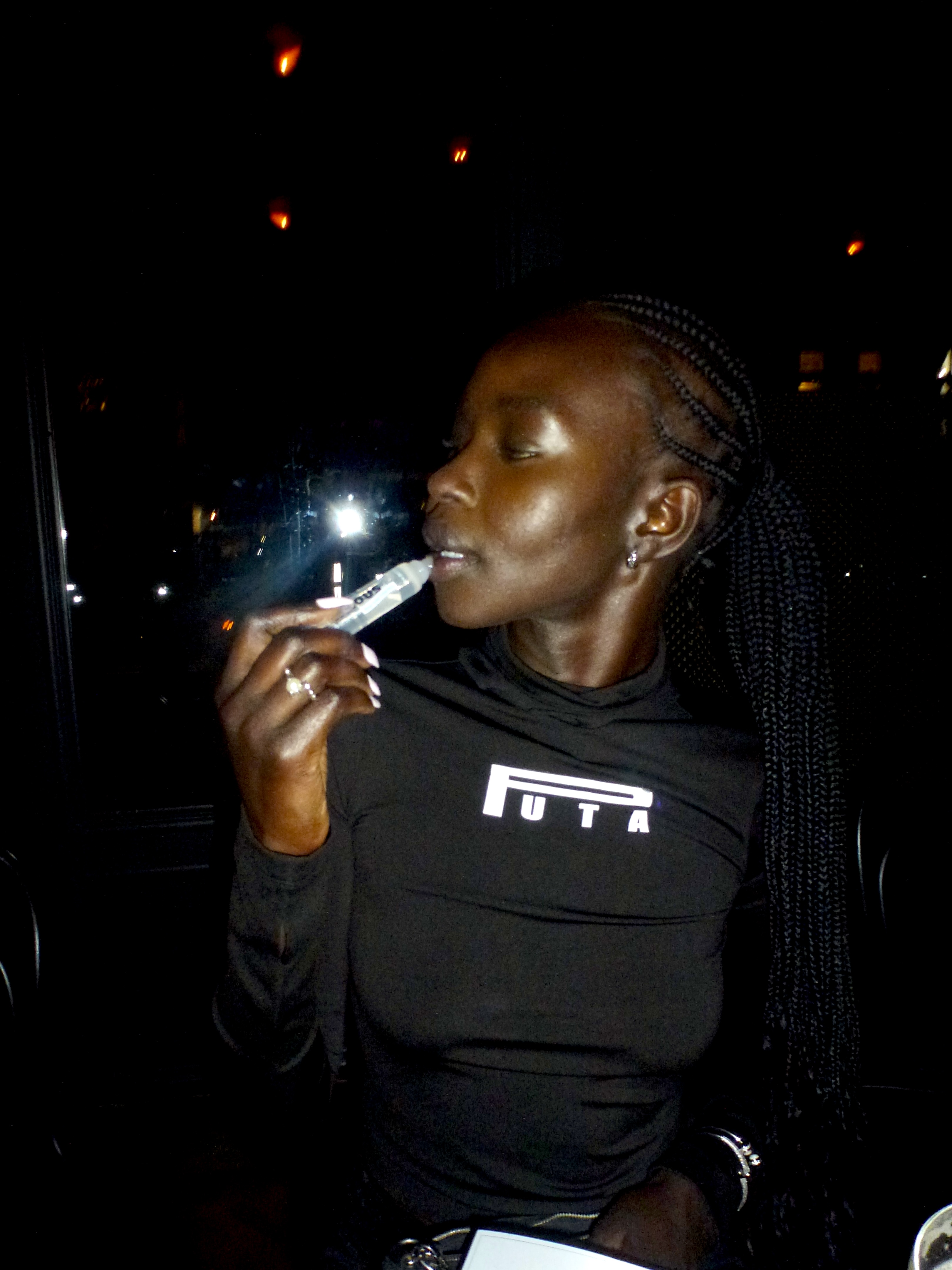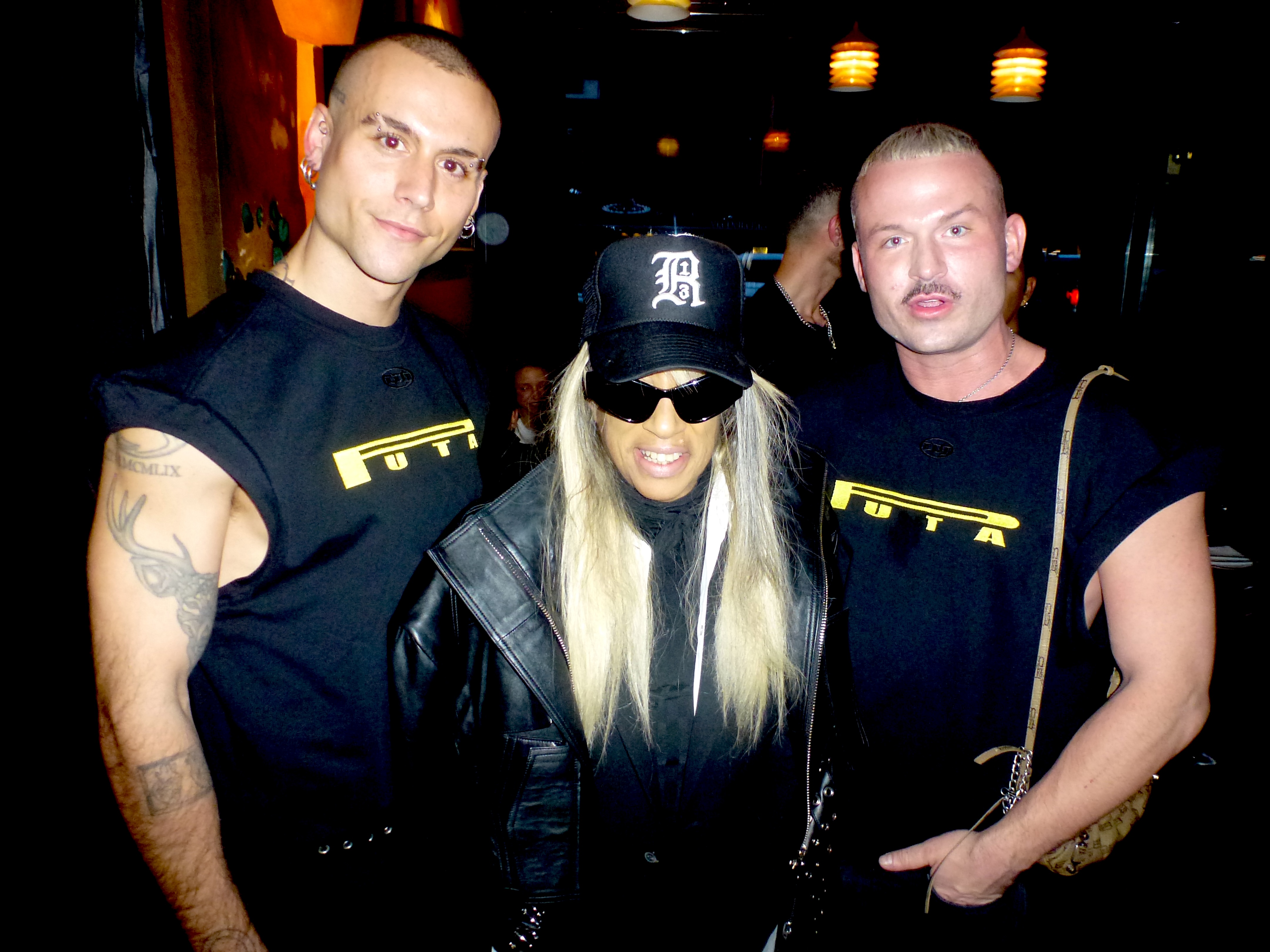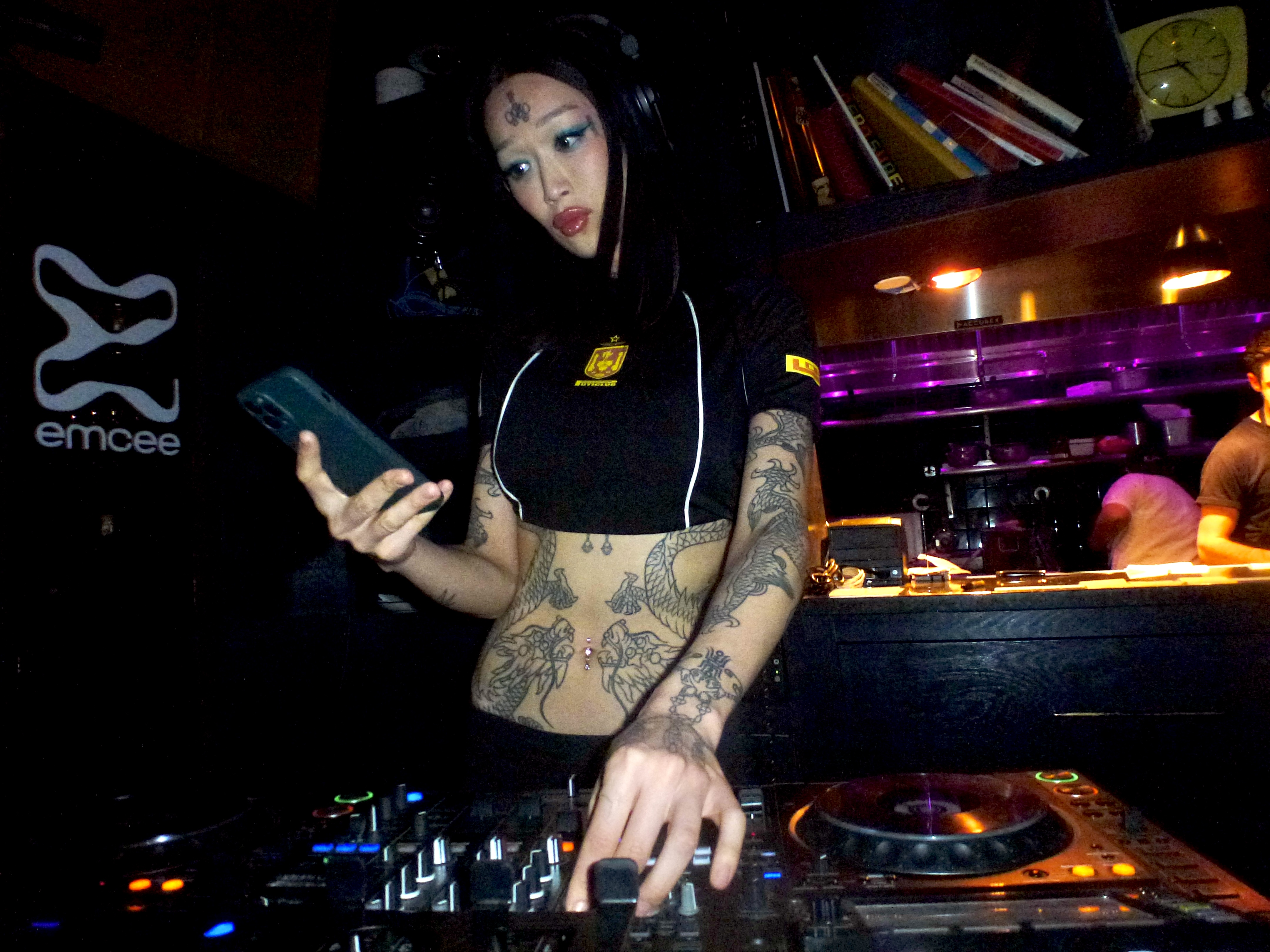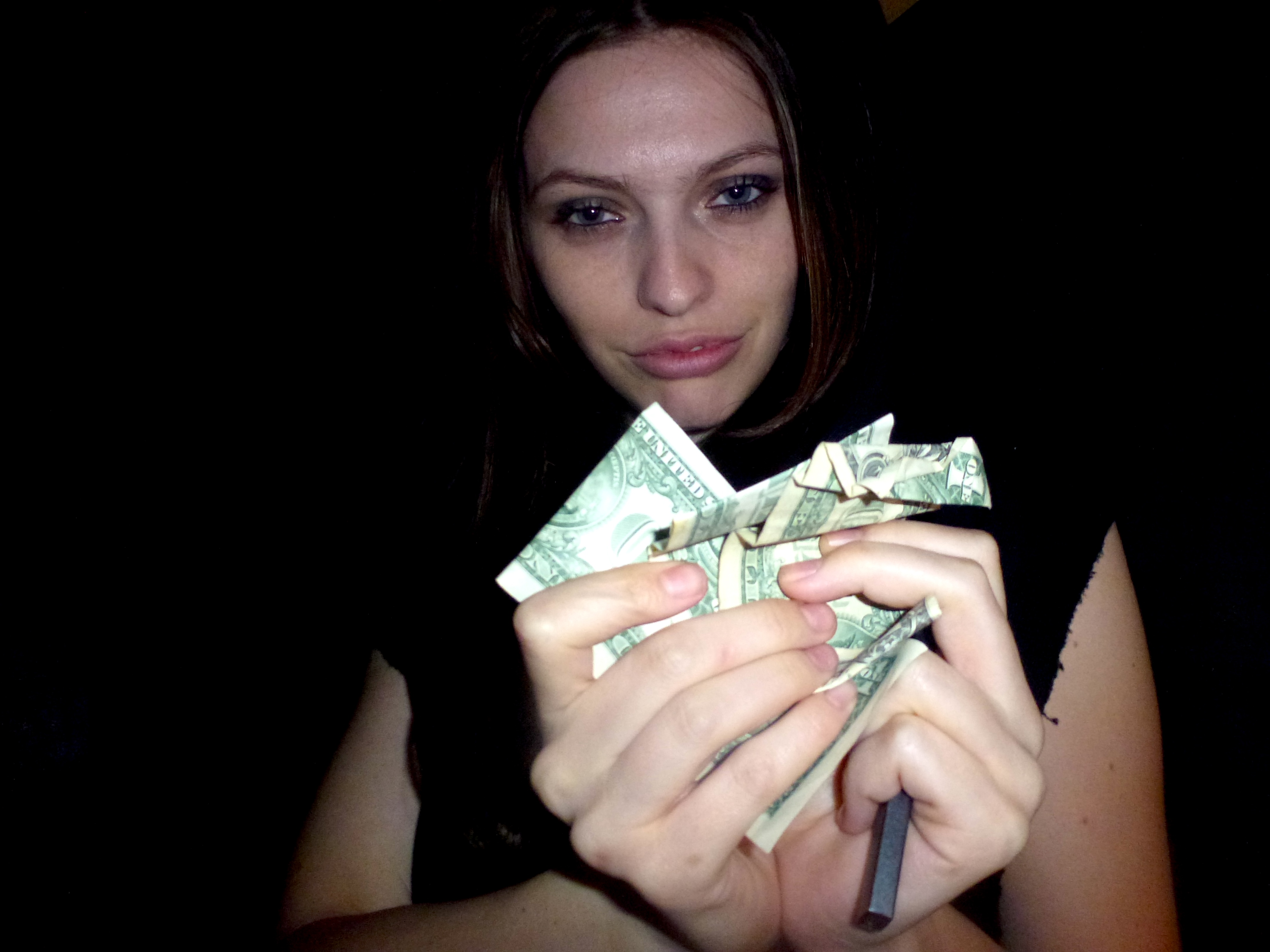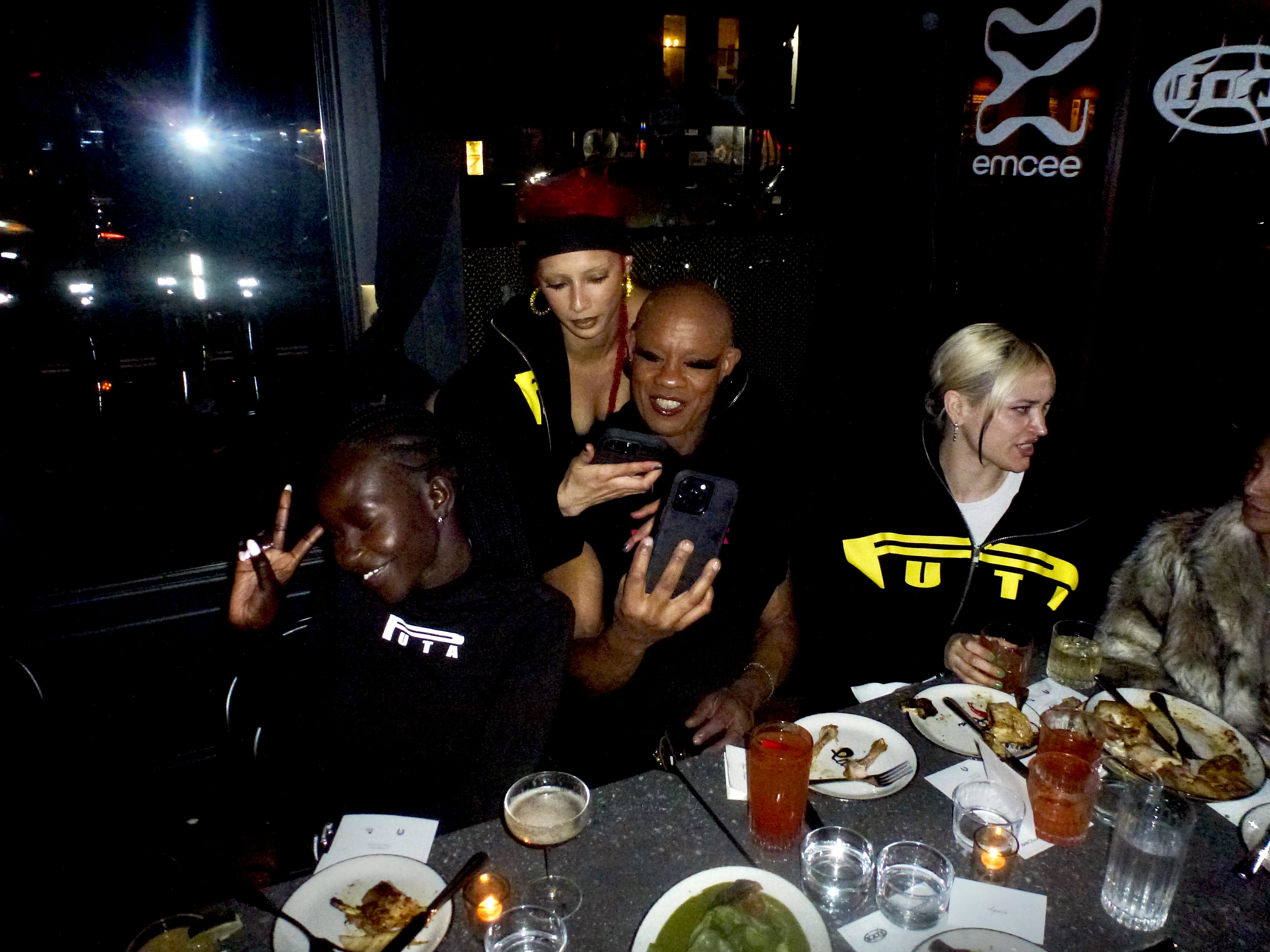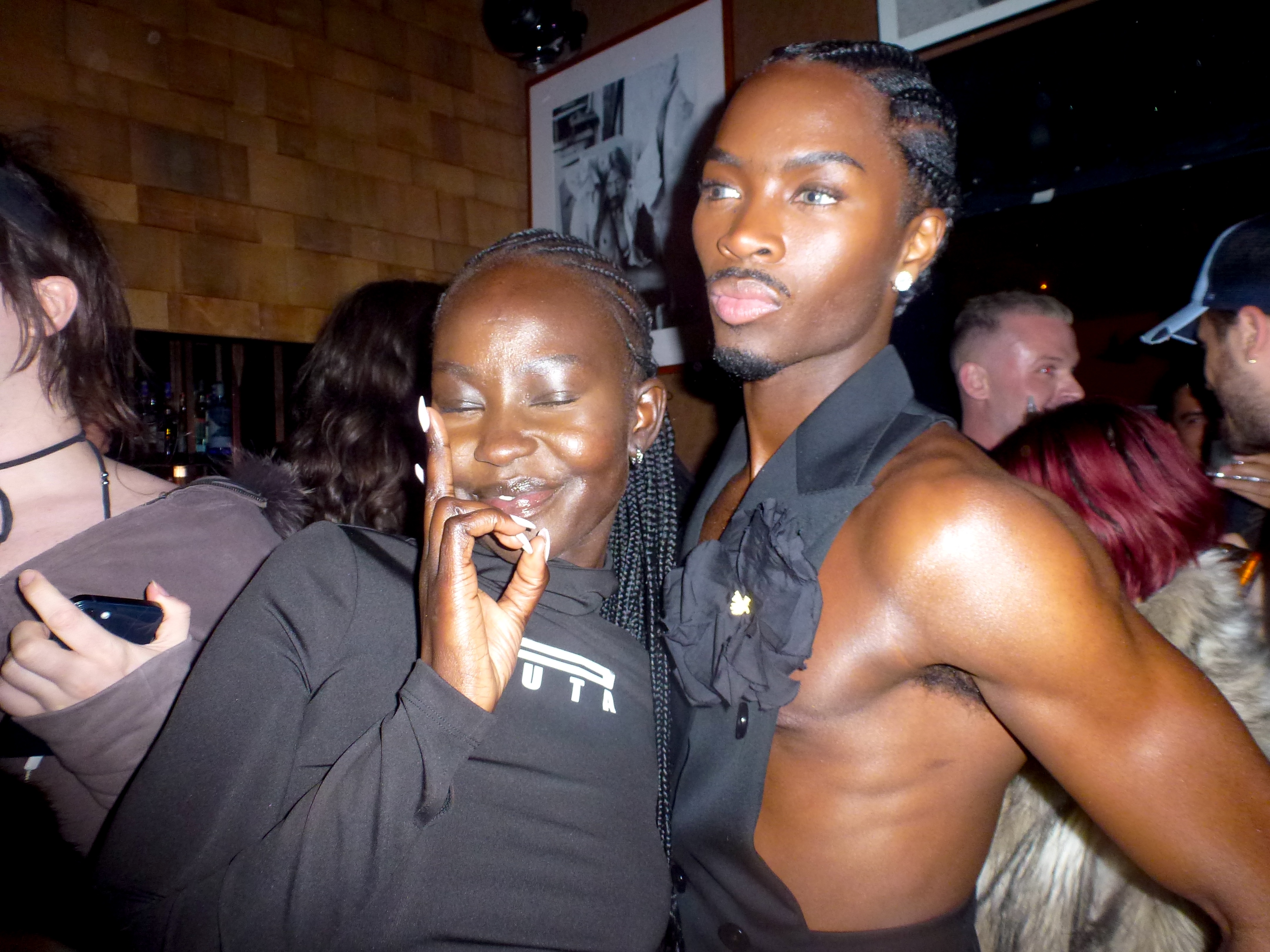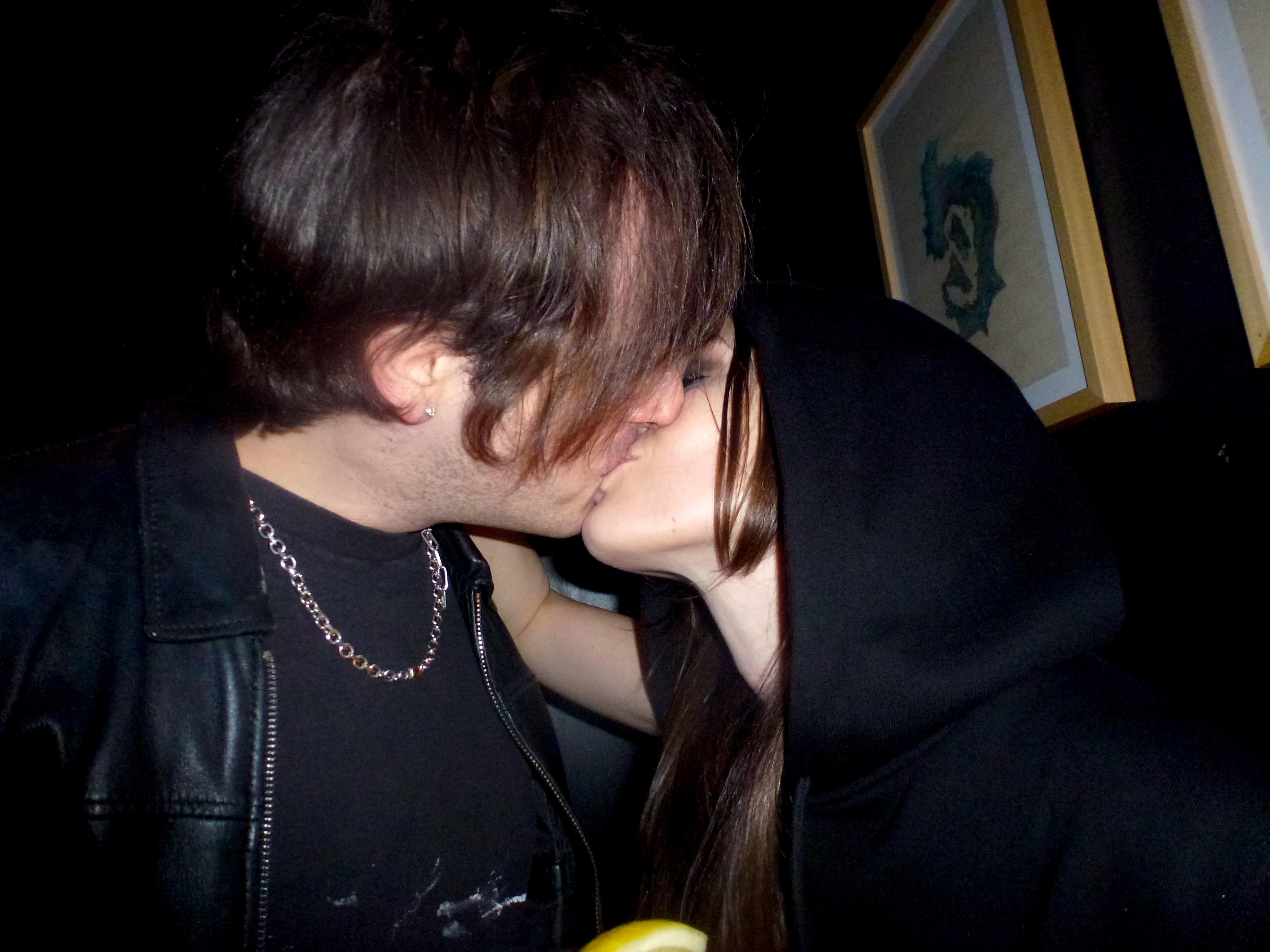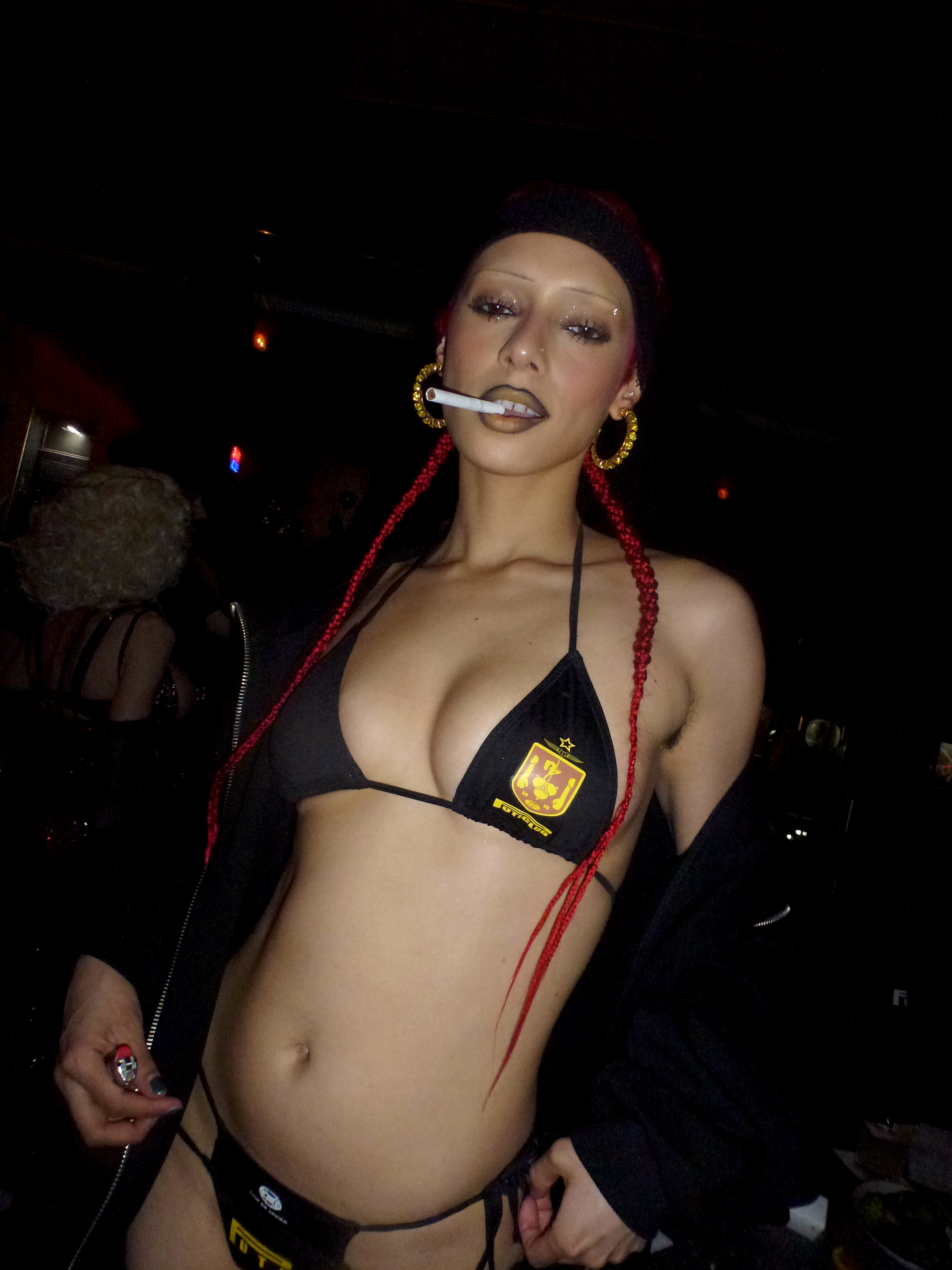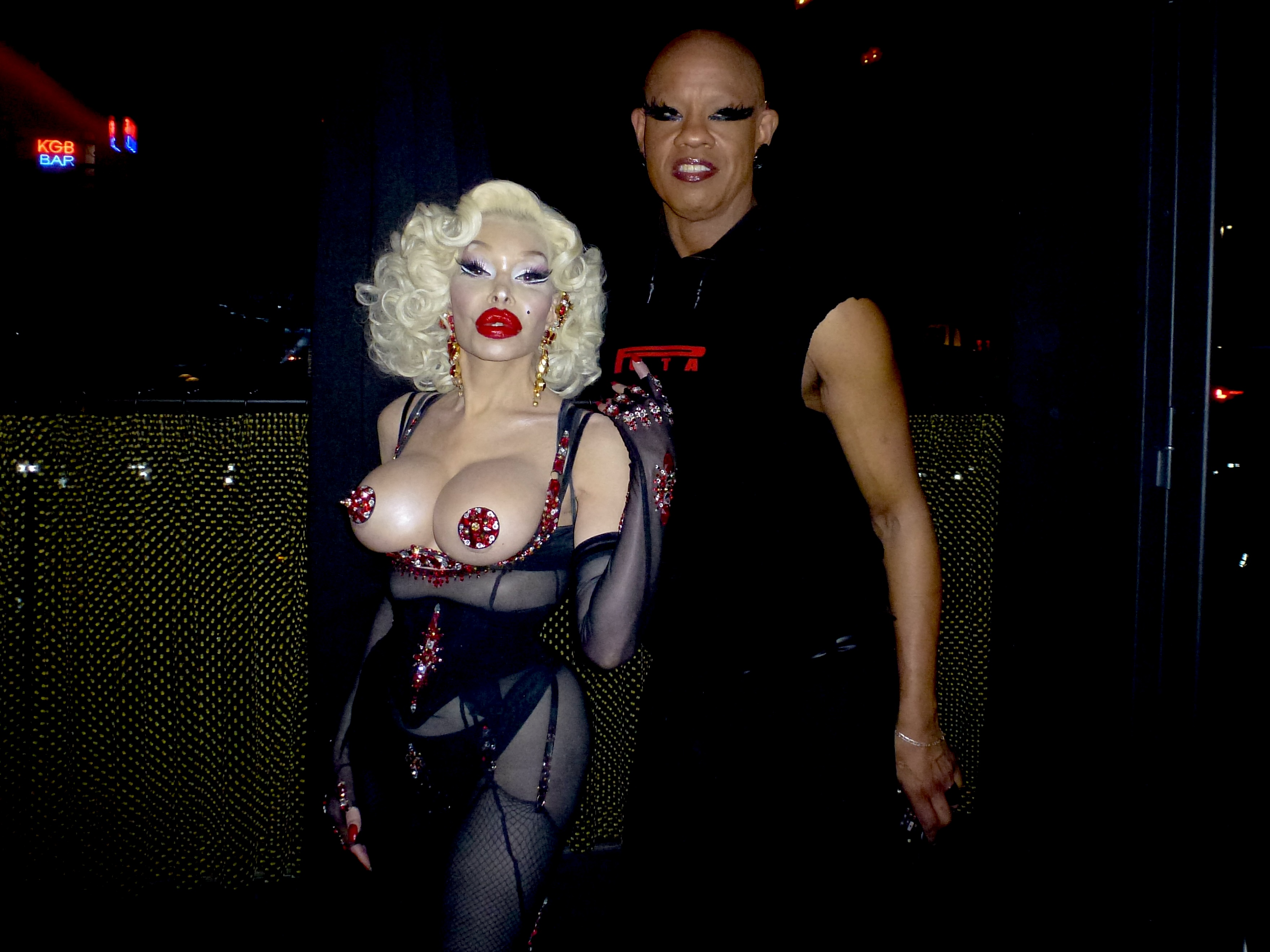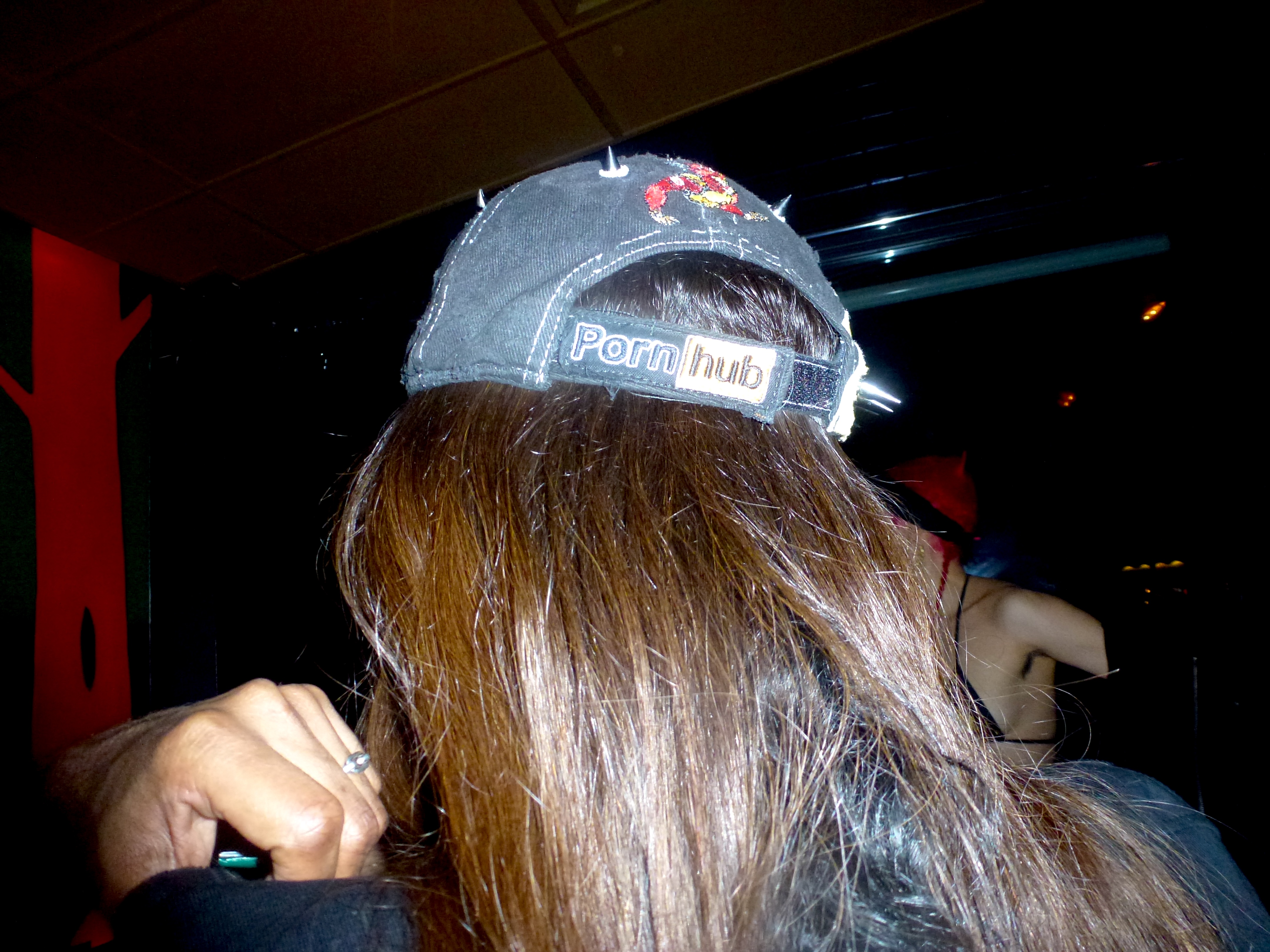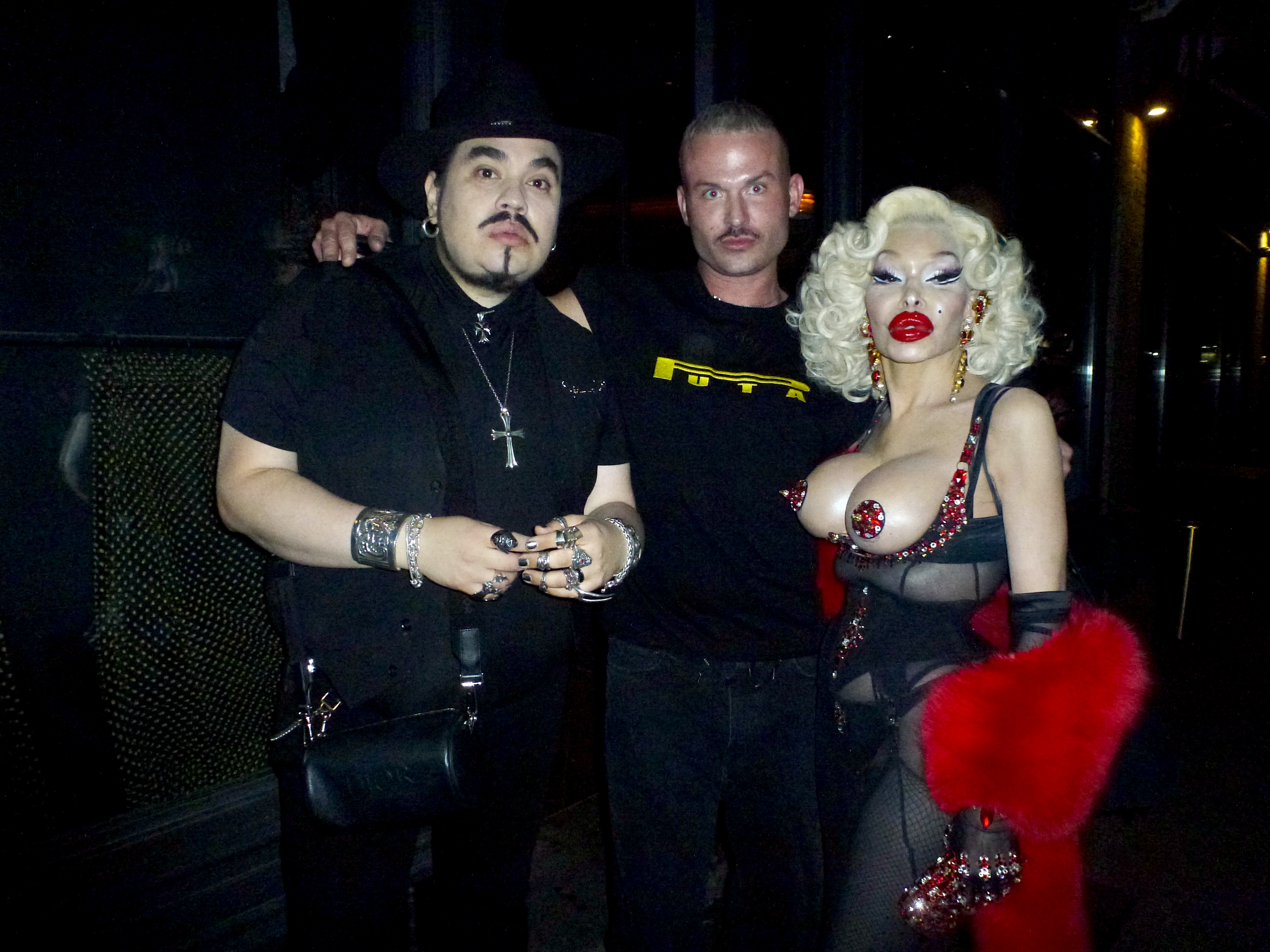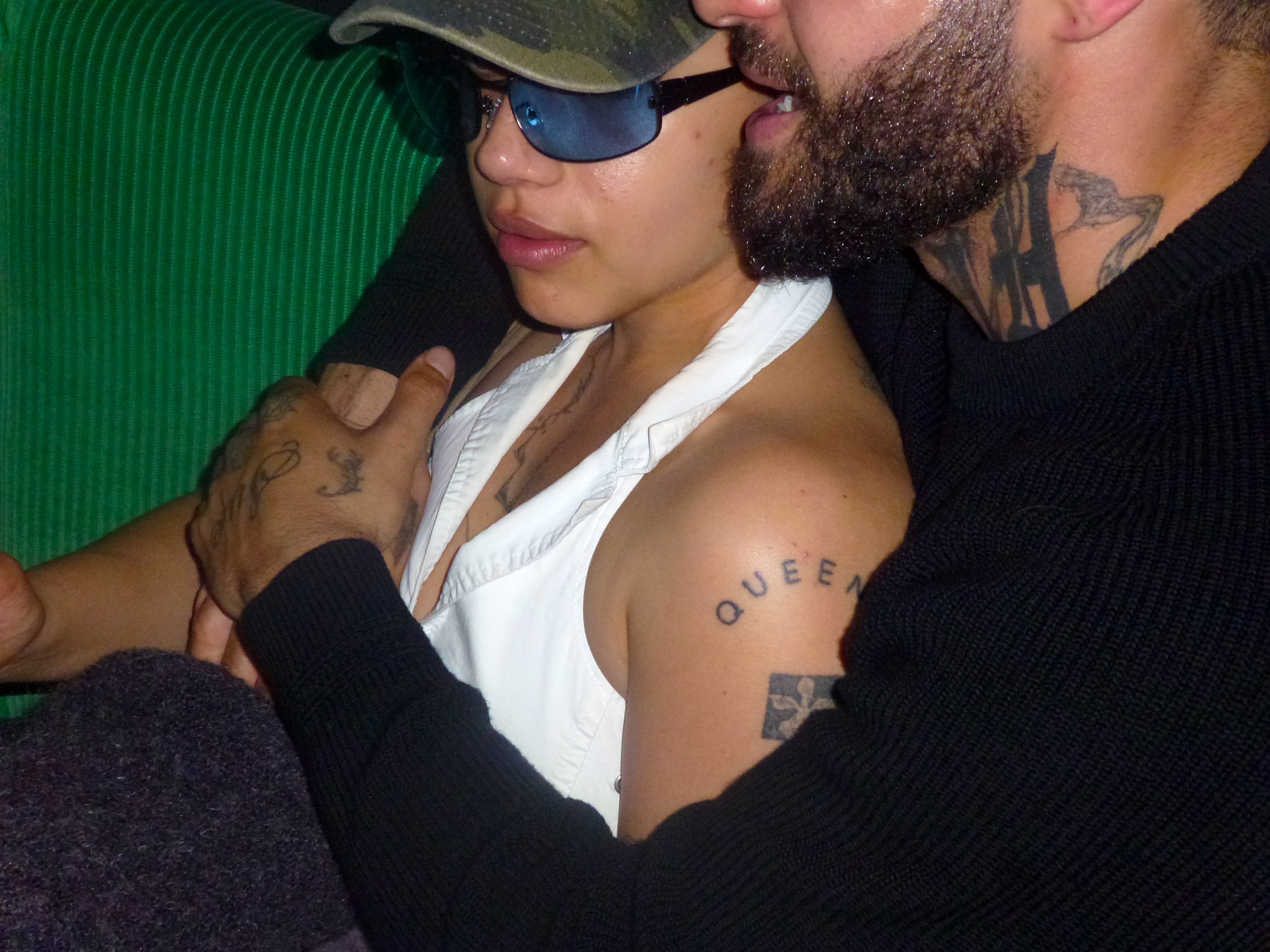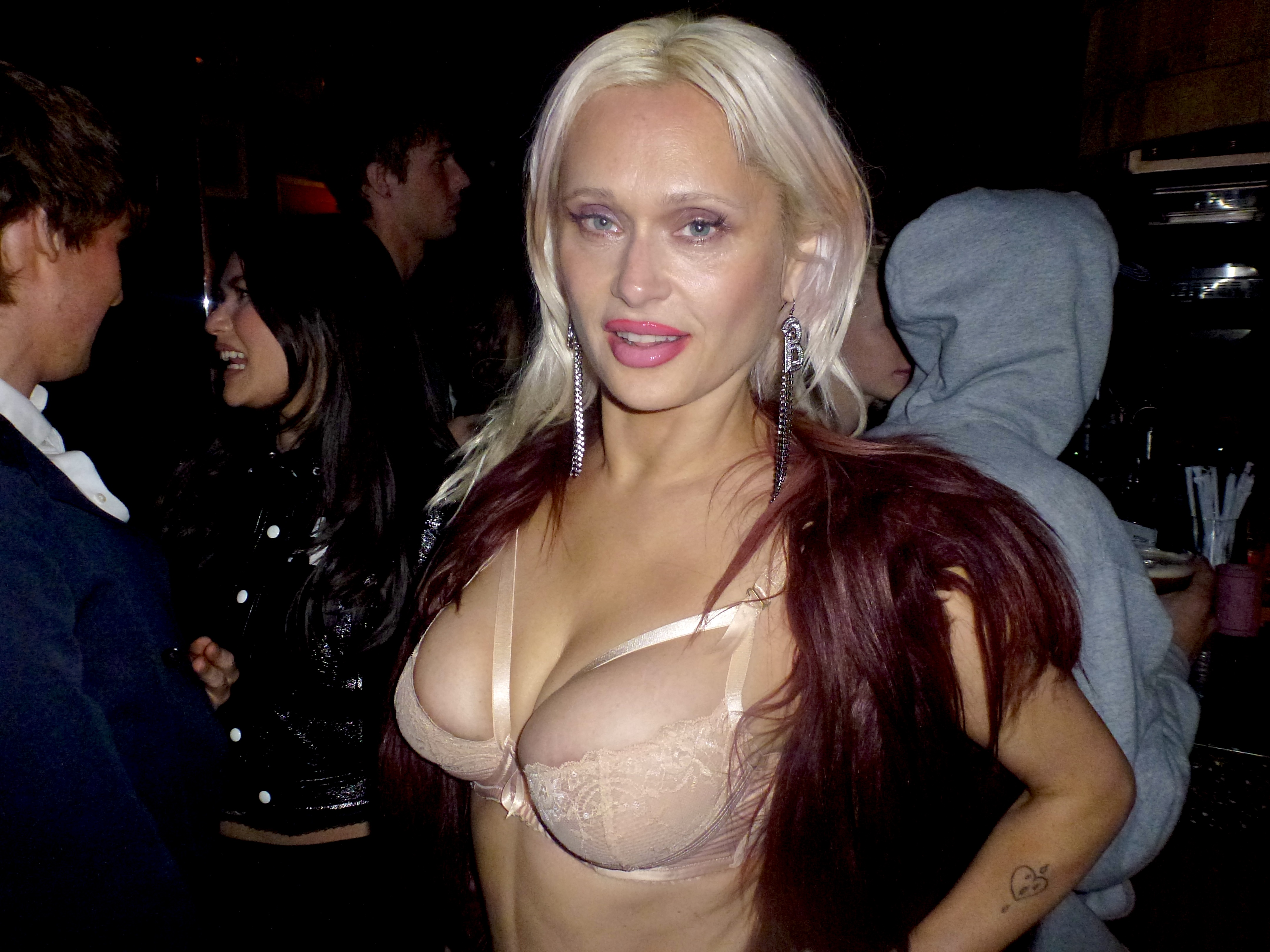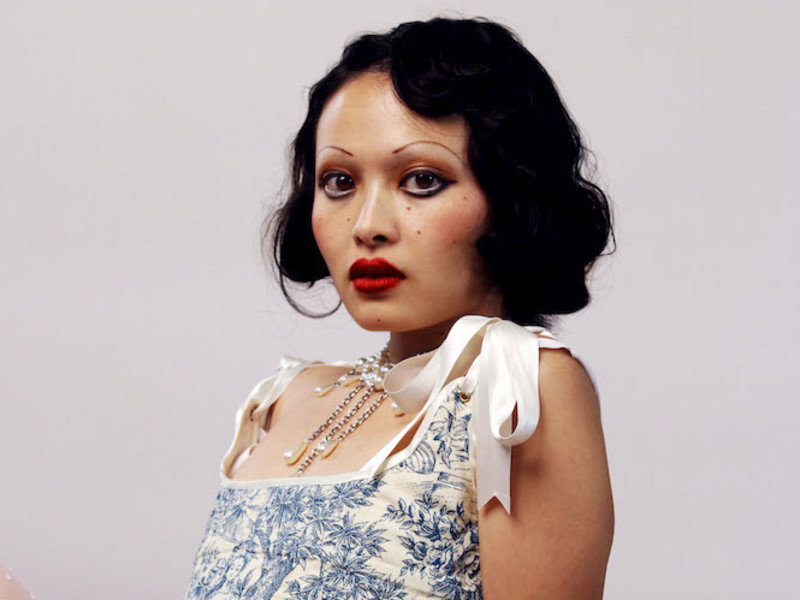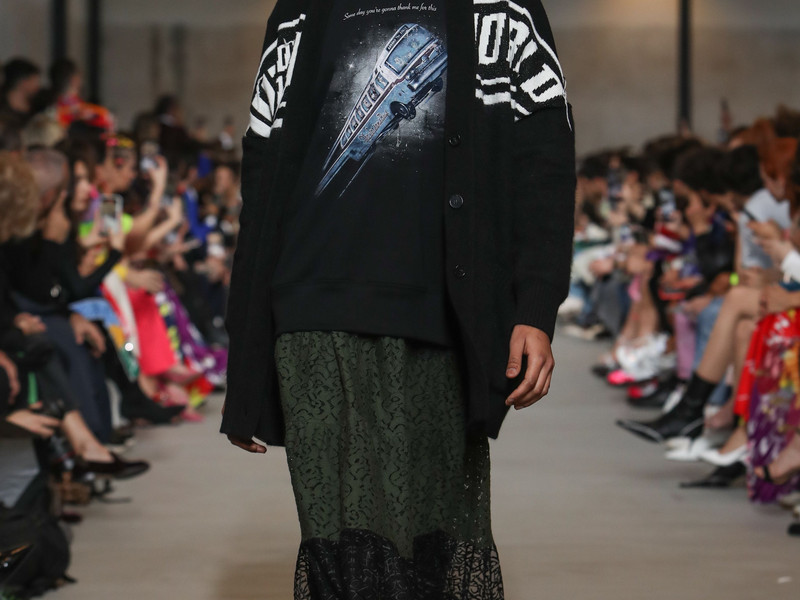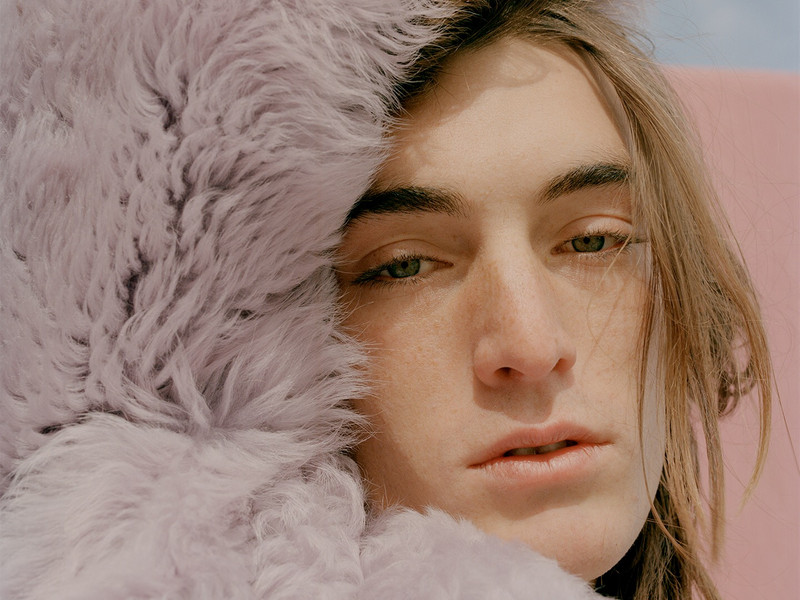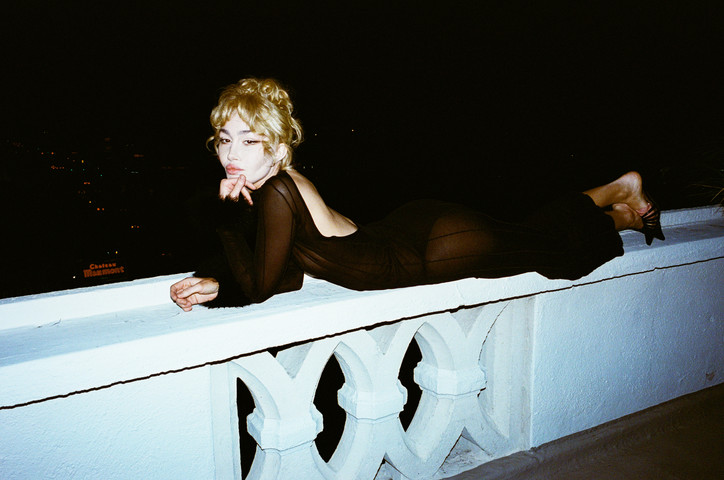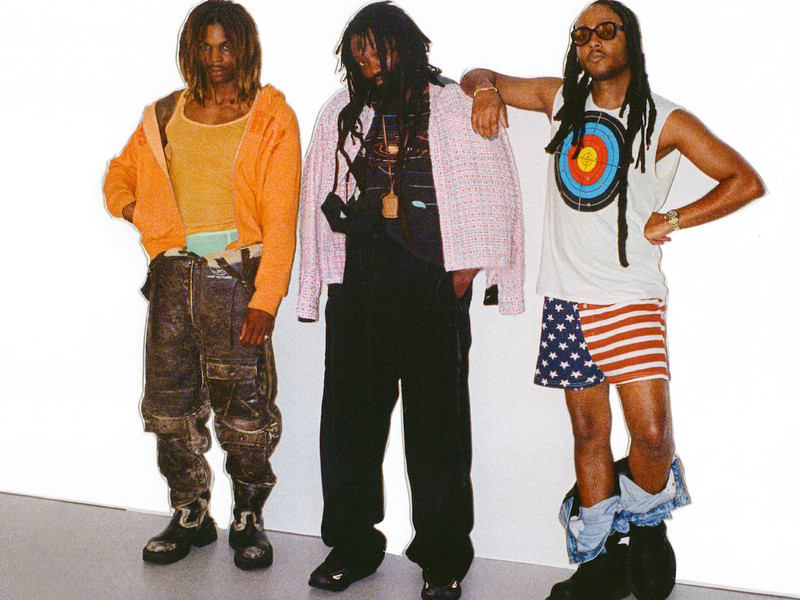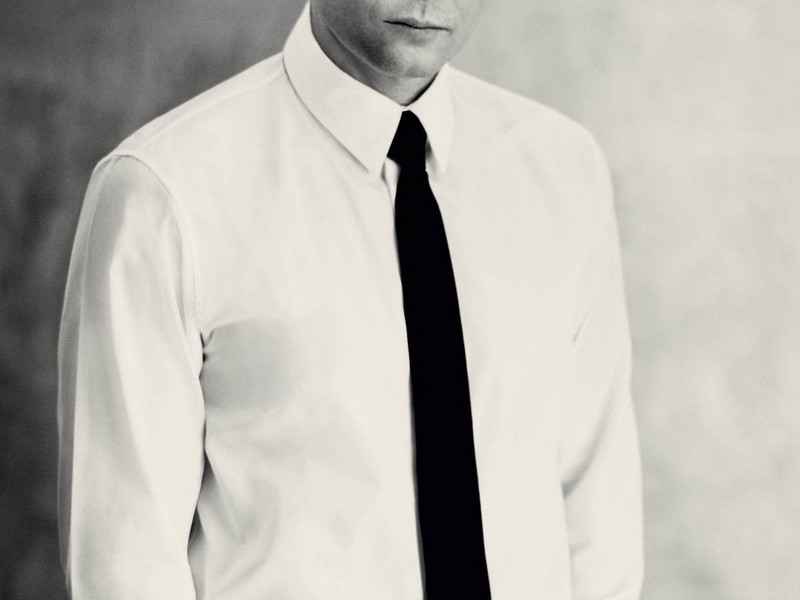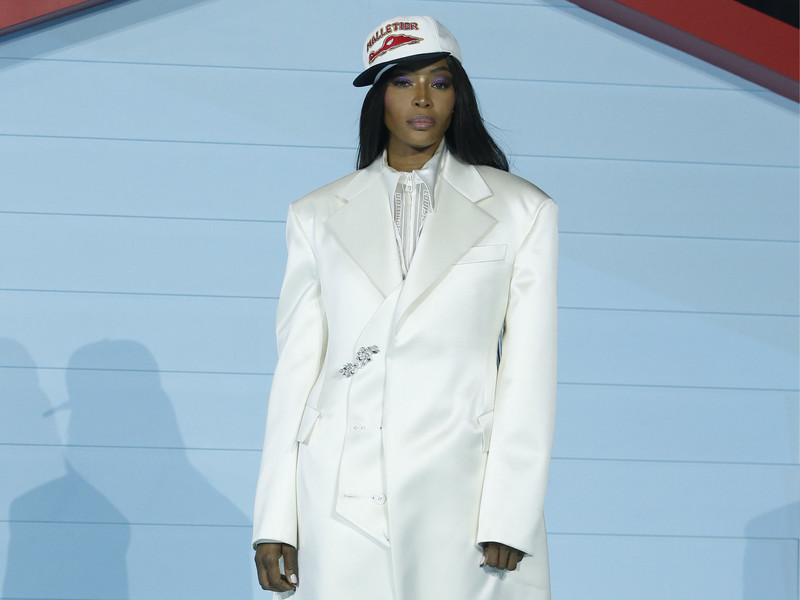Mike Cherman Asks For Forgiveness Not For Permission
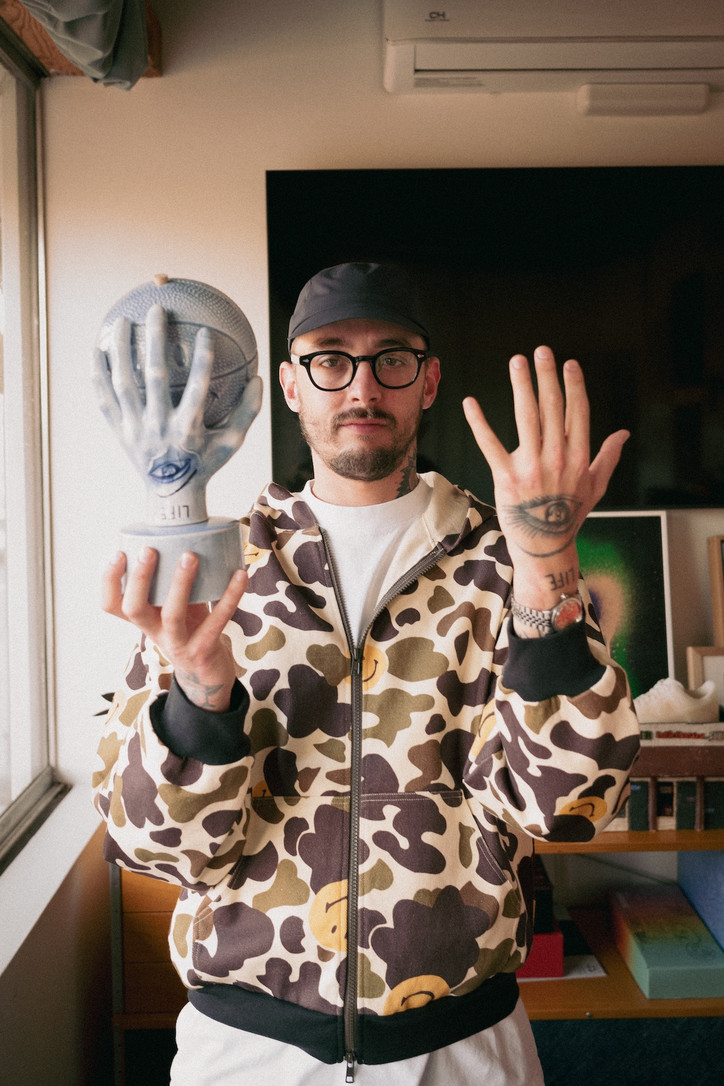
From the start, Cherman was getting into trouble in highschool selling t-shirts on campus, even earning the name “Mikey Merchandise.” After getting his start at a small jewelry shop called Goodwood in New York, Cherman quickly navigated his way through the fashion industry, meeting the right people at the right time, and eventually opening his own brand of reflective outerwear, ICNY. After being terminated, Cherman debuted the Frank Ocean Swoosh shirt at ComplexCon – making $50,000 in sales in 24 hours. The next day, Ocean’s legal team reached out with a cease and desist letter, and the party was over.
Nevertheless, the idea for Market was born. From then on, Market grew enormously by selling hoodies, T-shirts, sweatpants, and graphic prints like its signature yellow smiley-face. The brand has always valued accessibility over exclusivity, and has been widely available at retailers like Urban Outfitters and Zumiez since day one. In 2021, after receiving necessary pushback from the Asian American community, the brand changed their name from Chinatown Market to simply Market. After this name change, coupled with the decline of logo-mania and hypebeast culture, I spoke to Cherman about what this means for a brand that once thrived on limited release drops.
As a fashion brand, you have to be adaptable to changes in pop culture and consumer taste to stay afloat. office sat down with Cherman to talk about how Market plans to adapt to this change, his latest collaboration with Les Benjamins, and his crazy collection of 350 succulents.
Could you give me an overview of how you got into fashion and how you broke into the industry?
Yeah I’ll rewind a little bit. For me, both my parents were in the industry when I was a kid, but it was one of those things where I never acknowledged or cared about that at the time. My dad sells girls’ denim and my mom is a designer but not anything that I actually cared about as a kid. Of course, by the time I got into the industry, they were both out. That's when I wish I was connecting with them more. But, I started in high school, I was basically glued to the Adobe Suite. I started making T-shirts in my garage where I was taking Office Max iron-on paper and putting them onto different garments and creating my own graphic custom one of ones.
And at that time, it was very much just me as a high school kid thinking I'm starting a brand, inspired by my space and seeing all these different designers and people that I wanted to work with one day. It was ultimately myself emulating that in the beginning. I started off by selling t-shirts out of the back of my car in high school, I got the nickname “Mikey Merchandise” in high school, and basically almost got expelled from school for basically selling and distributing on campus. I made a t-shirt of a kid and that t-shirt ended up selling out and that kid didn't get one. I ended up starting a fight on campus and I got sent to the principal's office and my parents had to come and get me out. But that was the first moment of acknowledgment that something that I had made, ended up meaning something to someone.
I ended up applying to two schools, one of which was FIT. I didn't get in, so I applied to Parsons. I got in there, but upon landing there, my parents were like, We only have one year to be able to put you through otherwise you're gonna have to find a way. And in my time living in New York, I landed there and I was just interning from day one. I was working at this company called Goodwood NYC, which made wooden Jesus pieces and all this wooden jewelry at the time. This was a crazy trend, such an interesting one, but working there, all the rappers were wearing it at the time. I was a kid who basically thrown onto a laser machine to make custom necklaces. So for me, that was my first time meeting people and getting into the game, learning how to make custom products.
I had the opportunity to intern for this thing called the Nike Bowery Stadium. I was a kid basically working there that you’d say you want a dragon dunking a basketball in the back of the jacket and I'd sit there for five minutes, whip it up, show it to you, and then we'd go downstairs and make it. That whole experience kind of afforded me the opportunity to learn how to make products on the spot but this time I was making clothes. During that time I was riding my bike to work every day on a track bike and one day I got hit by a car, riding my bike to work. I went to work the next day and I made myself reflective socks as my first product. My first brand was called ICNY. It was all reflective wear for running and cycling. And that was done for about 3-4 years. I had an investor, I basically was terminated for my own company. I moved out to L A and I was living in my friend's second bedroom.
Complex Con came up that year, and a friend of mine offered me a free booth and I showed up her five T-shirts and five hats. One of which was a bootleg shirt that said Frank Ocean with the Nike swoosh. And literally, you know, that next day I put up a website called “Swoosh Frank Ocean.com”. I sent an email to my friend at HypeBeast, he posted it and within 24 hours we did over $50,000 in sales. My phone was just vibrating viscerally. I was like, I'm no longer broke and I'm gonna move out of this apartment! And then six hours later, I got a trademark inflict letter from Frank. I had to return all the money.
So, yeah, that's kinda the long winded explanation.
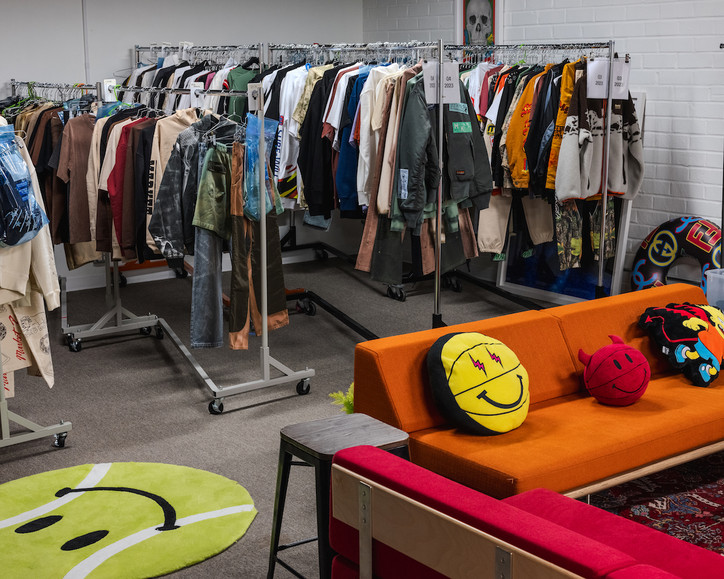
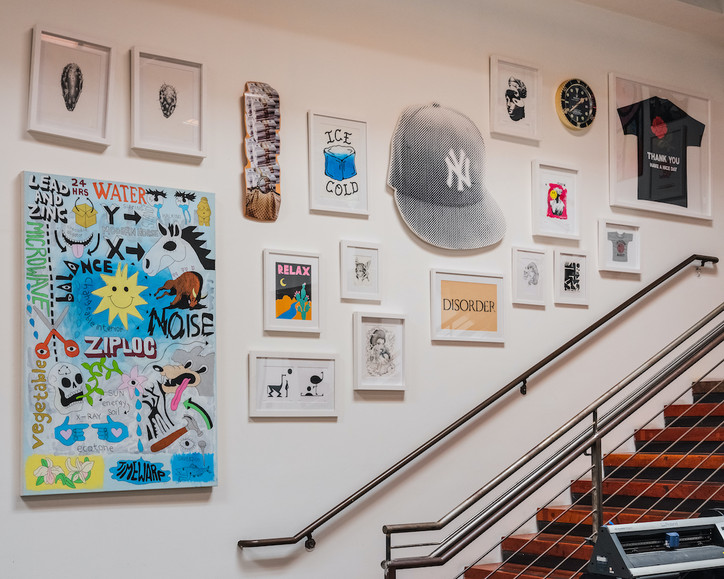
I love that it's such a whirlwind. I mean, it feels like you met all the right people at the right time and it was just a rollercoaster from there.
Oh yeah it's all a big snowball effect. When you're in the mix of it all, it doesn't feel like that and you feel as though everything's burning around you. But it all leveled out for sure.
What do you think your design position at Nike Bowery kind of taught you about your own design approach to your brand?
It's the entire ethos of what I take to approach things. Everything in that space was the same vinyl cutters and heat presses that you would see at your local soccer jersey shop. The whole idea that you could make anything by hand and then, you know, put it onto a garment. And for me, it was taking that rudimentary idea used for a very functional thing and trying to apply it to a more creative industry like “streetwear”. I was coming in every day and leaving with 20 custom t-shirts that I just had different ideas for. When that place closed down, I actually bought a bunch of the machines because the agency running it sold them for pennies on the dollar and I was just like a kid in the candy store just getting all these cool machines that I never had.
Again, it´s just great timing like that and I was working around people who are super talented that I was lucky to be around. People who are now big people over at Supreme or running their own brands. I don't know, it was a special formulation of people and I was definitely lucky to just have ended up there.
I think that's a special thing about New York too, especially during that time, just creatives trying to help other creatives.
Yeah, which I felt when I left there, it wasn't like that anymore.
Oh for sure. So you mentioned the original Frank Ocean Swoosh T-shirt you had made, tell me about the bridge from that to creating Market.
That was one of the concepts that I just threw together. Obviously Nikes was a popular song at that time. It was funny because I made that shirt, it did so well. I was flying out to Portland the next week to go to the Nike campus to go and meet with a bunch of different design directors and I was handing that shirt out. That shirt afforded me the opportunity to get different design projects. It was this mentality of “ask for forgiveness, not for permission”. That ended up knocking down a third wall for me that I didn't know existed. It would kind of get the attention of people that might not have paid attention before. That was an "aha" moment of realizing I should just keep on knocking that wall down and keep on taking risks and recognizing I'm not doing this to try to become rich, more that I'm trying to create ideas and put them out there in the world. As it went on, I was like, I gotta probably do this more legally if I want to run a real company here.
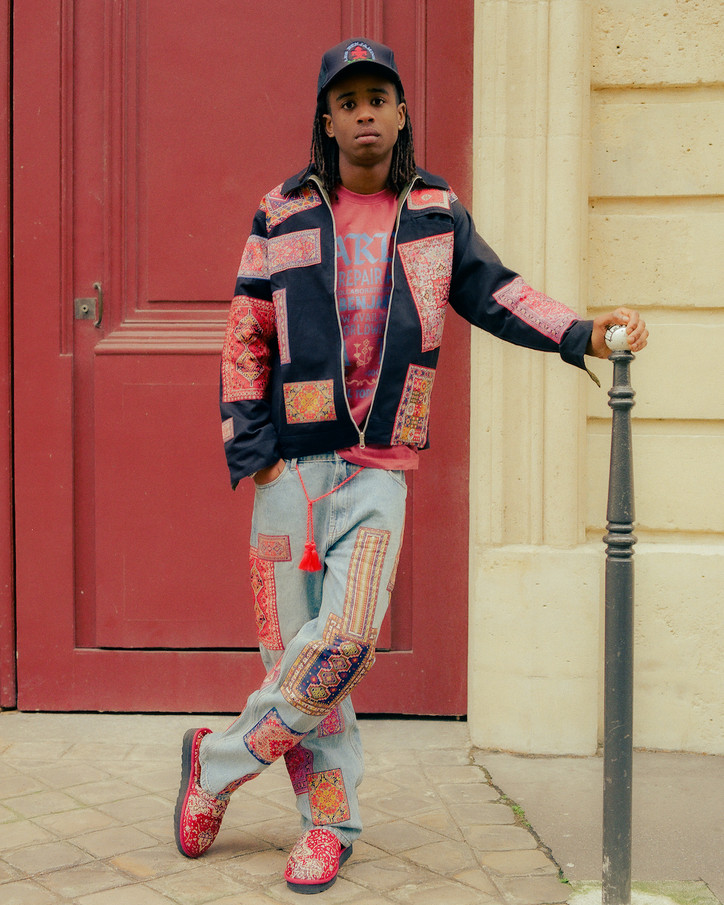
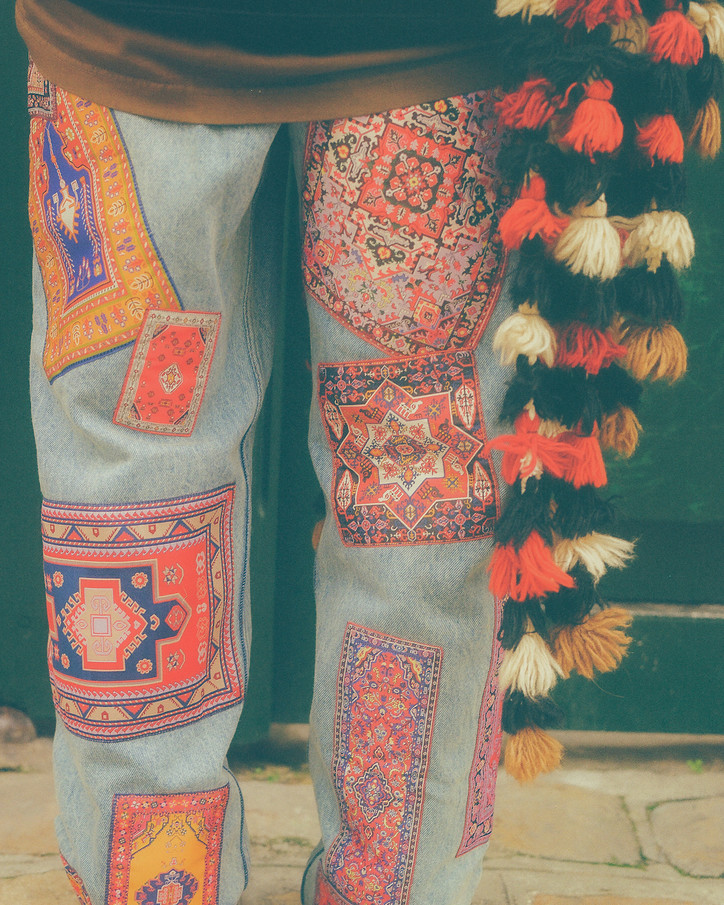
How do you navigate the legality of that?
A lot of times it has ended up creating opportunity or creating conversation. I don't think everyone thinks it's funny or that they understand why what we're doing is unique. A great example of that is people like the Grateful Dead where we did make a, you know, bootleg, Grateful Dead Shirt. And then we ended up having one of the most prolific partnerships with them over the past couple of years. It started as just one of one, and a bootleg that ended up becoming a whole formidable partnership that’s now long term. But ultimately sometimes those small conversations can turn into something big, whether good or bad and ultimately, which we want to be a disruptor. If I waited all the time for people to just let me go for it. you know, where disruption would be quite nuanced and it would be very watered down. So sometimes you just have to go after it and kind of create that moment. But, we've had some wins and we've had some losses.
So you mentioned that you had just started with a few hats and a few t-shirts that you just put on a credit card, even when you were just still trying to make a means for yourself, what was going through your head when you made that financial risk?
I remember just starting the whole thing on a credit card that had a $20,000 limit on it and I had just hit that limit as we were showing up to Complex Con. I didn't know what I was gonna do. I had no idea what was gonna happen. I was just hoping that I was gonna sell enough shirts just to pay for what I had invested. And on the first day at Complex Con did 24K in sales. We went back to the hotel room with my girlfriend, we had some cash and I still have some of these photos on my phone of us pulling the cash out and having room service together, just that whole moment and it was almost like I just I wanted to cry because I've gone through such a bad situation of having an investor losing this thing that I created that I was like, oh shit, I'm not in debt anymore and I can do this for real. So that was the first validator of maybe this was just kind of a risk and now it could be something real.
That's an amazing feeling, just like a little validation that you're heading in the right direction is always good.
Yeah especially after you feel like everything is just burning.
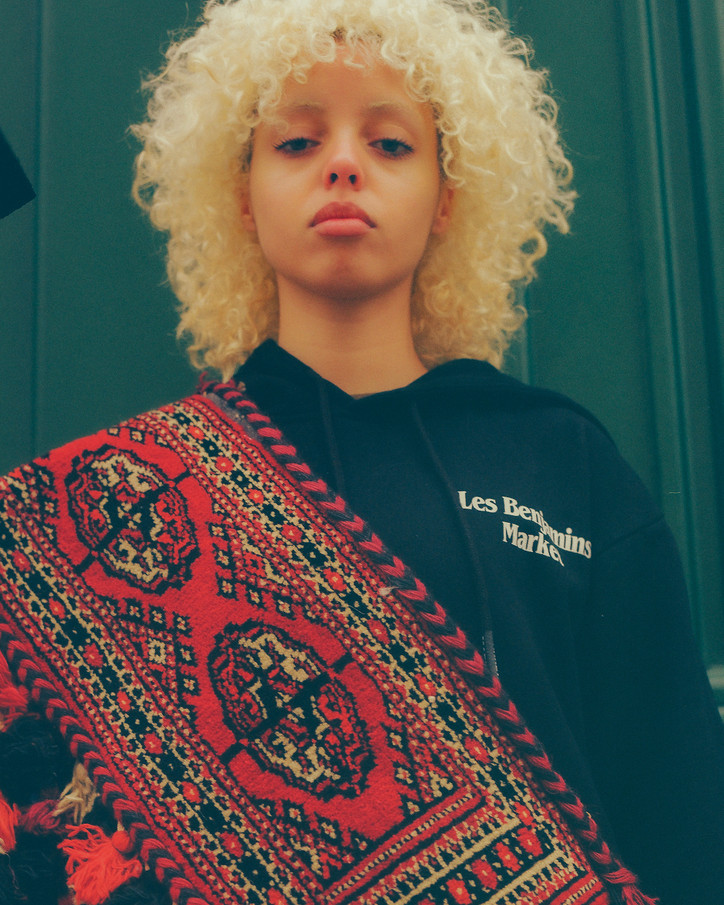
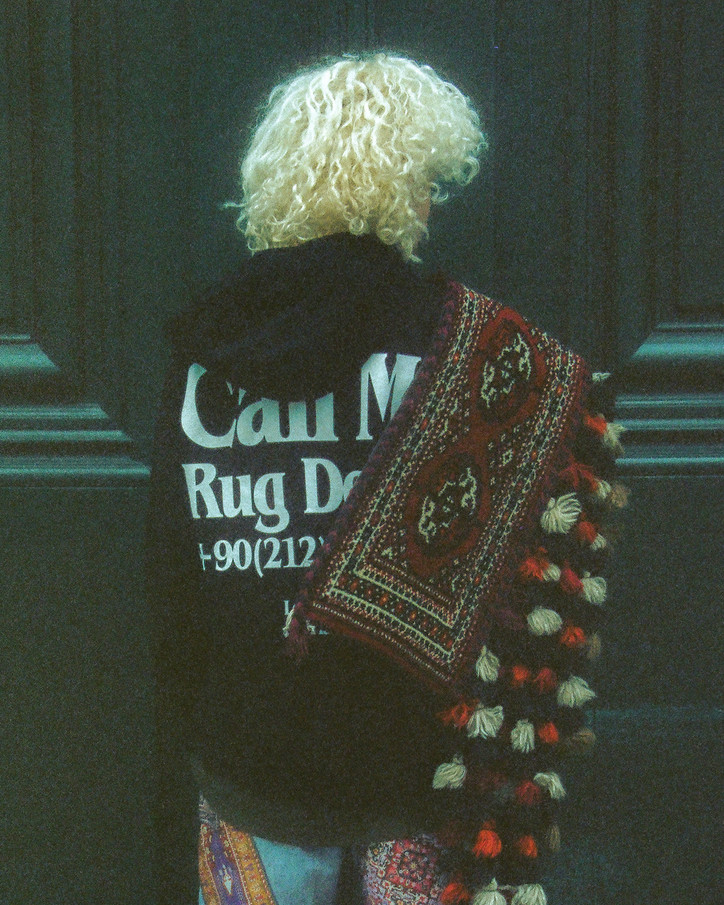
After changing your name from Chinatown Market to Market, do you feel like this has changed the identity of your brand at all?
I don't know that it's changed the identity more than it's an evolution of what's been happening within pop culture, what's happening with brands. The brand can't just be the same brand that it was, it had to evolve. As market, it's actually allowed us to do more to expand out and to tell stories that I think before the brand was kind of pitted into this, just bootleg, lofi kind of mentality. And as we evolve forward, there's so much more meaning that's within this, you know, universe and it's starting to identify all the different special natures of what this brand is, let them each breathe on their own. And an example of that is the Smiley basketball we created. That ball is transcended on its own. It's been in Kardashian Vogue shoots to Lebon’s office to my niece and nephew's playroom. So there's stuff that have been $85 streetwear collectibles for a long time, that probably just need to be $25 at the Dicks Sporting Goods and Foot Locker for a parent to be able to go get their kids a sporting good item, and it doesn't need to be a “cool guy” collectible.
For us it's recognizing that Market is so much more than just a streetwear brand. Its starting to look and identify each of those things because that ball is now Smiley Sports and we're working on trying to build out each of the pillars of our business to recognize, it's not just streetwear and there's so much more value. And that's why we're working with Clara and Chapter 2 and making sure that those stories are being told properly. A lot of times you can get put into a box really easily. And, you know, this is all about how we reach pop culture? I've always wanted to break the norm of what's possible within streetwear because when I came into this thing and I started selling to Urban Outfitters, which is very normal. Now, I had many people tell me I was selling out and the brand was gonna die in two months. But I've always believed in the idea of its selling in. I grew up in a town that didn't have a “cool guy” store near me. I didn't have cool people at my school that were wearing the craziest brands. It was Abercrombie jeans and polos. My perspective was a lot different and I've always wanted to reach more people and the more people we reach, the more success I've always thought that.
Do you think you're now favoring more accessibility over exclusivity in that way?
The funny thing is, yes, we've always had this mentality of being inclusive, not exclusive. While almost by nature, the brand kind of became a feeling of exclusivity because we would do a drop, it would be available for 48 hours and then would go away. So it created the scarcity versus us just doing what Supreme was where it was everything that sells out and it's on the resale market for four times the price. I found that less to be the case for us more than it was that you had to be a part of our experience and a part of our social media presence and everything else to follow the whole storyline and be a part of our product journey.
With “sneakerhead culture” and hypebeast culture not as prevalent as it was in 2019 and 2020, how do you see Market adapting to that change to keep up hype and excitement surrounding the brand?
I think that we continue to put out exciting collaborations, disruptive products and continue to speak to the nature of what's happening within pop culture. That's something that we've always done well and we'll continue to do but at the same time, it's about running a great brand that even if you don't participate in those general tenets of pop culture you can still participate in the brand. Whether that's fun, easy icons like Smiley.
Market should be an easy brand for you to participate in versus it being an “if you know, you know” brand. Sure I love the headiest, most crazy Japanese special product, but just as much as I can appreciate an everyday t-shirt that I just wear with my regular wardrobe. So we're trying to be that brand that can be a filling piece in your closet. More than it is the thing that you want to wear one week and then stop wearing the next, right?
How do you think that collaborations in general play a role in the market and what would be one of your favorites if you have one?
Every collaboration has been an opportunity to mix these worlds together to change the way people look at certain things. I think the best example of that in the past, like maybe three years for us, is probably the Grateful Dead collaboration we did. You know that hit Crocs, it had Lebron wearing it walking into the NBA finals. Those types of projects where you transcend different cultures and you had people who are Deadheads in the comments saying that Lebron has to name five songs, he doesn't know anything.
But at the same time, you have people who didn't listen to the Dead coming over the fence and vice versa. And it´s a beautiful thing when you can meld these two worlds together with communities who either don't cross over or don't communicate and let them cross pollinate in a special way. For us that's always the mentality right? I'm always looking to try to take properties that are either dormant and untouched or in some cases. We like My Chemical Romance and they’re very popular, but I wanted to bring them into our world just as much as the Grateful Dead. I wanted to bring them into a sports universe and try to think about how we can kind of honor each of these properties in their own way.
I'm always looking to do stuff that makes people wonder, why or how? It’s trying to take something that exists already and trying to wrap it up with a new bow to make it feel special and to give you a whole new experience or perspective into something that you already love. I think Erykah Badu has also been one that's been really special for us. You know, she actually a long time ago saw that we made these bootleg converse with Nike Swooshes on them, sent us a, you know, ad m and literally we were at her house in Dallas smoking weed and playing Mortal Combat for six hours and, it's relationships like that, that it's less about the fact that it's Erykah Badu, all those things. She's just a normal human. You get to connect with this person and kind of then go build this relationship that transcends business. And that's one of the special things through the brand has been able to create these partnerships that not only just create business, good partnerships from a overall brand perspective, but you know, we created these relationships that are long lasting and Erica then created a brand called Badu. It's amazing to be able to connect with these different people and then to go see these things blossom from those partnerships.
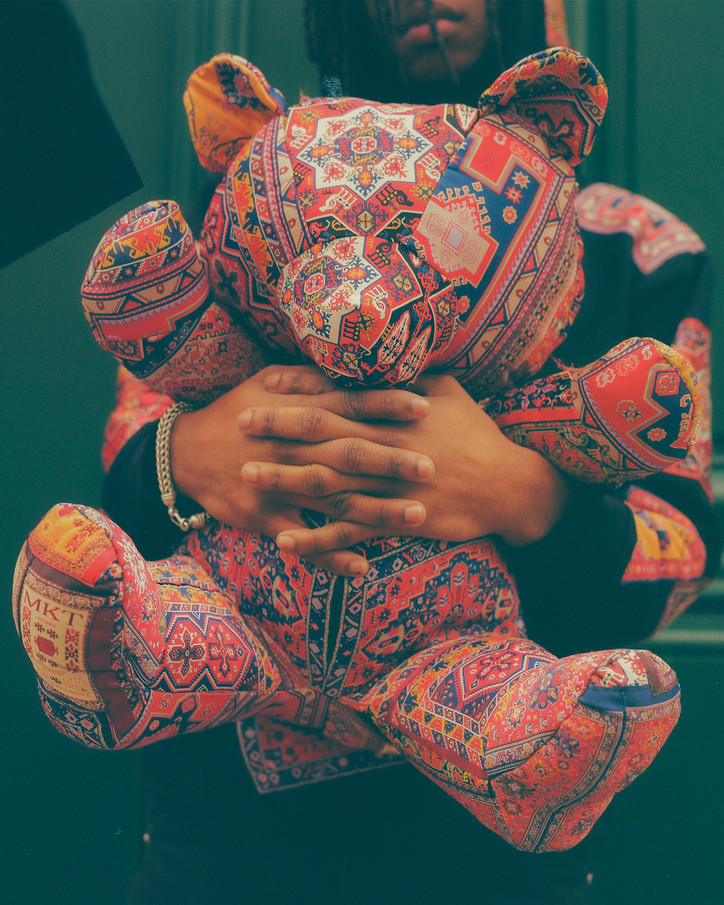
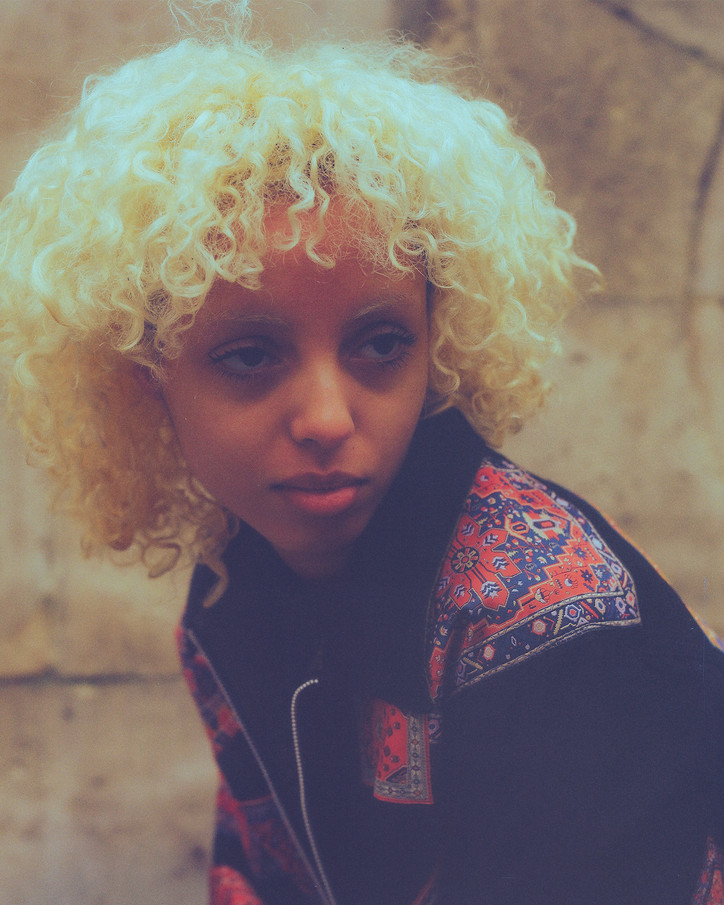
Can you tell me a little bit about the Les Benjamin's collaboration that you have?
Yeah so I'm a sicko collector. I like collecting things to a degree that's maybe beyond what's normal. I'm a huge rug collector. I have over 100 different things like Persian rugs, war rugs, and novelty rugs that I've just been collecting over the past 10 years. And that's how I ended up connecting with Bunyamin who is the founder of Les Benjamins.
Through that, we would always just DM send each other rugs and just connect over our shared passion of collecting. He's also a kind of pseudo hoarder in a way, you know, he's got a bunch of crazy sneaker collection rugs, you know, toys, et cetera. But after Paris Fashion Week, around a year and a half ago, he had reached out so we ended up flying to Istanbul. And I spent three days there, basically going to the Grand Bazaar, going to see different rug dealers. On that trip, he literally said “let me call my rug dealer”. Instantly we were like, oh shit, we gotta make this a shirt. I walked into this fourth story random shop, in a totally desolate, poorly lit room with this guy who made woven labels and on this woven label wall, he had this sample wall of all these cool labels. They were little woven rugs and cool reference pieces that you could show what you wanted. I was like, "how much for this whole board?". I need this.
We bought the board from the guy, finally haggled over it for 200 bucks which ended up being the source of inspiration for the overall project. It's those kinds of partnerships that we just immersed ourselves in this world and tried to take our perspective to what it would look in their lens because Les Benjamin's to me is like one of the better brands in the Middle East. Ultimately, one of the leaders that makes really special products and really fashion forward stuff, which sometimes doesn't always cross over into our world. I make t-shirts, hoodies and sweatpants and sure I make cut and sew products as well, but we're here to be a graphics brand and so it was fun to kind of put our foot into his world while also trying to make something that I know my community could participate in. While at the same time his fans and his consumers could say, oh, this is really fun and a different look to what their world looks like.
Just out of curiosity, what other things do you collect?
The weirdest one is that I have over 350 cacti and succulents. I have two greenhouses, one at my office and one at my house. The pandemic really drove me deeper into that. You know, I was driving across California. I've been to plant shows. I have a bunch of friends who are over the age of 65 who, you know, collect plants and make pottery. I got really into ceramics because of that because, once you buy really nice plants, you gotta have really nice pots to put them in. But it's not like I'm going to art shows by pots. I'm going to like a grandma's house and deep San Diego that just like making these pots. This grandma is famous in the plant community. You know what I mean? So, I had this one lady named Erica Van Auker. She passed away about two years ago, rest in peace. Her pots that were around 100 bucks are now $5,000 and it's things that only a really small community of people know about.
It’s fun to me to be able to discover these little niches, discover these little worlds. It was never sneakers for me as much as it's like these obscurities, like rugs, the plants, the pottery, I dabbled a little bit into art, but that's an expensive thing to dabble into. not as easy to be, you know, a hoarder. Whereas plants, I can go find a bunch of $5 plants and then they grow to become something beautiful and also the nuance of plants of like, they can die. I could go buy a really expensive plant, but I could kill it. It's kind of more humbling than buying a rug or an expensive product or a cool vintage thing. I gotta take care of it and if I don't, then all my investment is gone. So that's been the most rewarding thing because that experience is the most humanizing collection that I've ever done.
So 5, 10 years down the line, where do you want Market to be?
I'm a person that's heavy of ADD. When I talk to you about the different factions of our world, when I talk about things like the smiley basketball that transcends our brand, I talk about the brand itself. Like I wanted to be part of pop culture. I want it to be one of the larger things that's out there. If I can sell to places like a Target, or I can sell to Selfridges, then I think it's cool to walk that line. It's crazy to say it because people are sometimes allergic to that mentality.
When I was a kid, I was wearing Massimo from Target or my mom was buying me Kirkland t-shirts from Costco. I'd love to play in that arena just as much as I'd love to play in the mass arena. That's where brands like Fanatics- they're not “sexy” maybe, but they're able to access worlds where fans are and I wanna play in those same arenas. I wanna be able to make the coolest product for the most amount of people and it's fun to be able to shake up these different worlds. I'd love just as much for my mom to love a t-shirt as I'd love for a 14 year old cool kid to want to participate in it. I guess our goal for Market is to let that continue to grow, but also to acknowledge the other superpowers of our world and to let people experience those too, not just keep them suppressed because we want to be a core streetwear brand forever. We want to be part of pop culture.
I think that a lot of people have such a stigma around “selling out” to Target or something like that. But really if your brand is truly about community, you would be in those types of retailers.
Exactly- I'm just excited to be able to continue to have these challenges and be able to create products because I know deeply, I'm lucky to be able to do this. I worked at Jamba Juice in high school like I didn't have cool jobs. I worked at a taco shop so for me, this is every day. I'm lucky to be here and I just want to take the opportunity to continue to shake it up.
